Ein Tag in der Global Times und Taipeh Times
Global Review gibt mal einen Überblick, was in der KP- Zeitung Global Times und der DDP-nahen Taipeh Times heute so die wichtigsten Themen sind.
Mal wieder etwas Antikorruptionskampagne. Diesmal trifft es den ehemaligen Parteichef von Hangzhou. Interessant nicht nur der Vorwurf der eigenen Bereicherung, sondern, dass er übermäßig für die Kapitalexpansion sorgte, was doch eigentlich eher als mehr Wirtschaftswachstum angesehen werden musste oder ist damit mehr überschaubares Finanzsystem gemeint, für das es neuerdings ja eine neue Regulierungsbehörde gibt. Zumal auch interessant, dass Eingriffe in die Marktwirtschaft auch als Verbrechen gelten.
“Former Party chief of Hangzhou accused of accepting bribes totaling $28 million
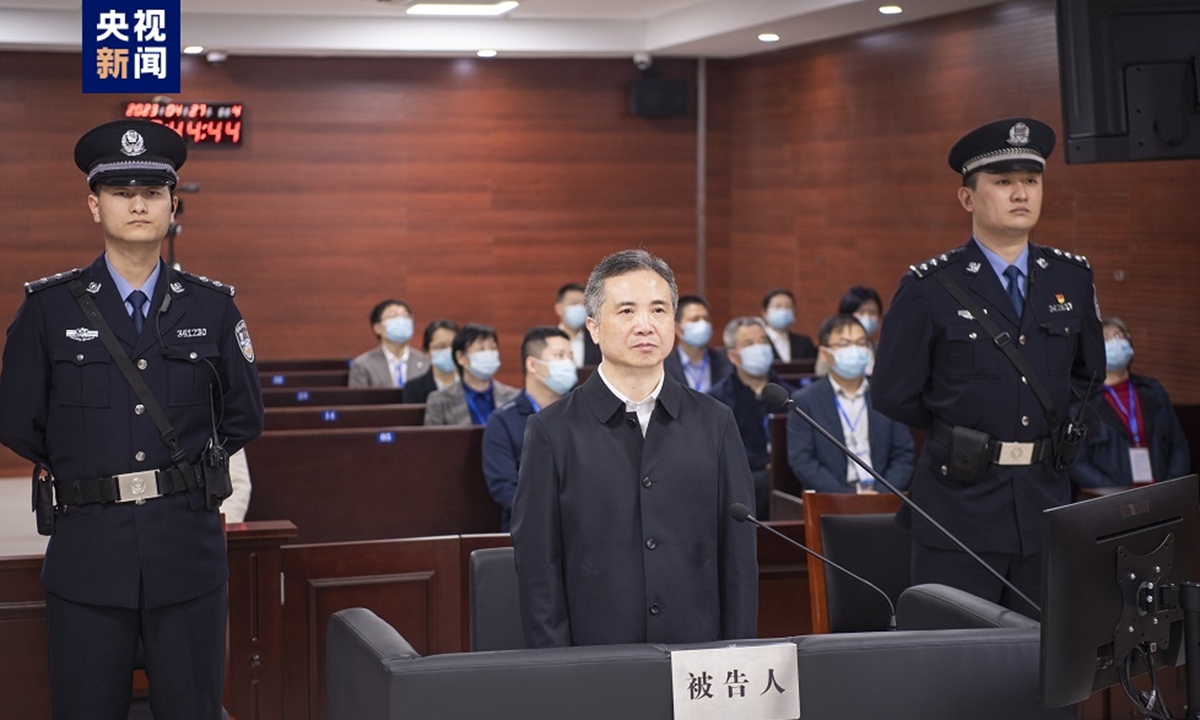
Zhou Jiangyong at court in Chuzhou, East China’s Anhui Province on April 27, 2023. Photo: CCTV
(…) Zhou was put under both disciplinary and supervisory investigations by the CPC Central Commission for Discipline Inspection (CCDI) and the National Supervisory Commission in August 2021, and was expelled from the Party and public office for violating laws and disciplines in January 2022.
The CCDI said the former official ignored the spirit of the central government, colluded with the capital, and supported disorderly expansion of capital. He also violated rules by interfering in the market economy and engaging in corrupt activities with his family members.
https://www.globaltimes.cn/page/202304/1289930.shtml
Doch zuerst wäre da mal wieder die Goldene Woche während der Maiferien, die auch den Internationalen Tag der Arbeit umfasst, aber noch wichtiger ist es China zu zeigen, dass es nun die Coronapandemie hinter sich hat, der Konsum und nicht nur die gesundheitliche, sondern vor allem die wirtschaftliche Erholung dadurch massiv gefördert wird, durch Tourismus und Shoppen.
“China’s consumption expected to soar for May Day holidays amid boom in travel, further injecting momentum for recovery”
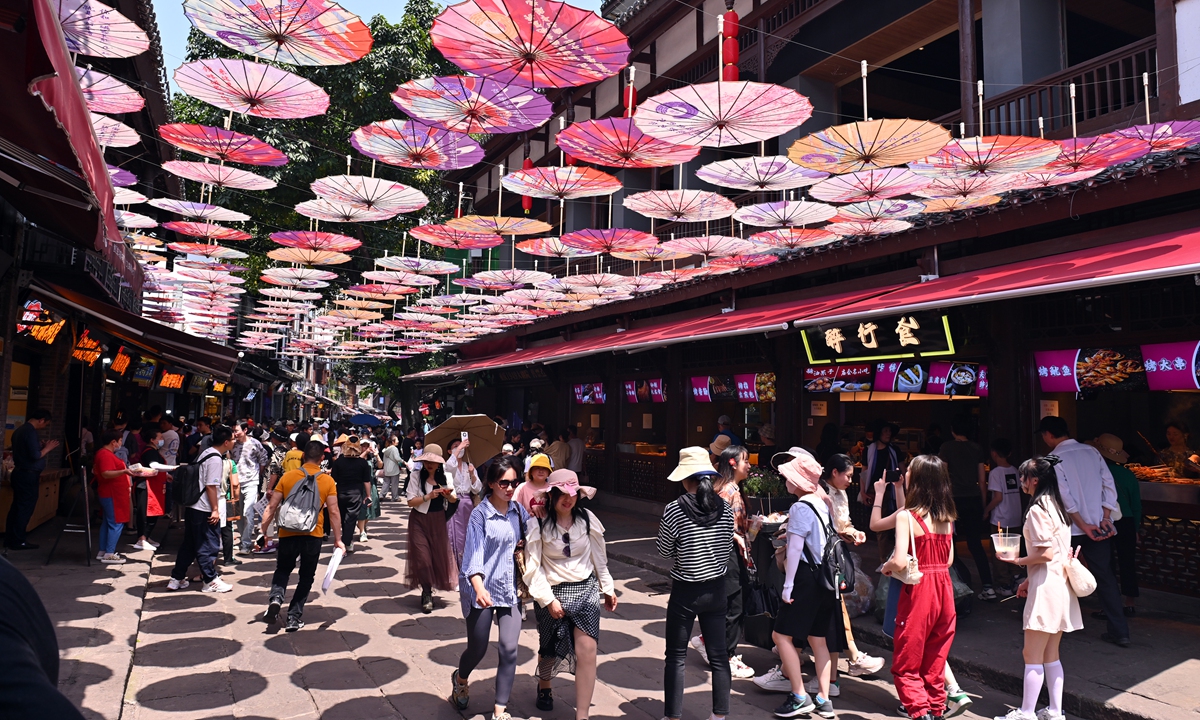
Tourists visit a popular tourism spot in Southwest China’s Chongqing Municipality on April 16, 2023. As the five-day May Day holidays draw near, many places around China have entered a warming-up period with soaring tourist arrivals. The „hottest“ travel season in five years is expected, with bookings rising as much as 200 percent from 2019, said online travel platforms. Photo: VCG
https://www.globaltimes.cn/page/202304/1289924.shtml
“China railway to manage 120 mln trips in golden week, up 20% from 2019”
https://www.globaltimes.cn/page/202304/1289909.shtml
Nach dem Yoon- Bidentreffen sieht man nun die Gefahr einer neuen Nuklearkrise um Korea gegeben:
“US-S.Korea agreements add new danger; ‘extended deterrence’ could trigger ‘another nuclear crisis’ in peninsula”
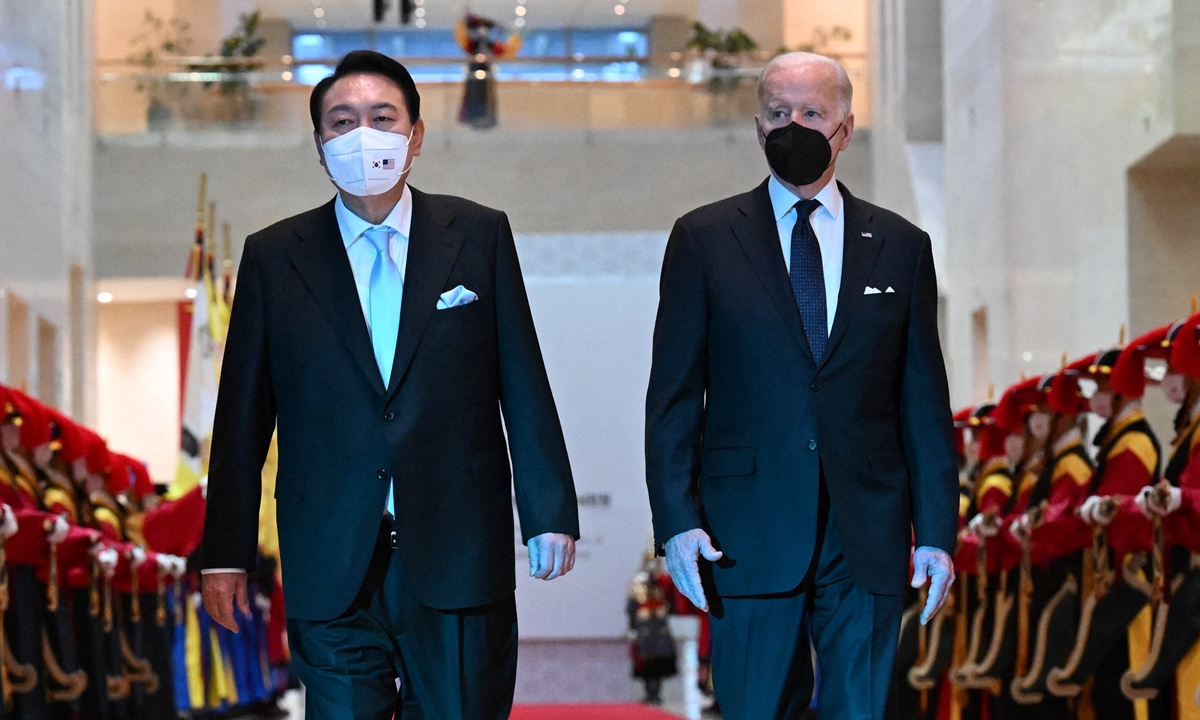
South Korean President Yoon Suk-yeol (left) and US President Joe Biden. File photo: AFP
https://www.globaltimes.cn/page/202304/1289926.shtml
Nachdem die USA wieder die unter Trump eingestellten Manöver in Südkorea aufnahmen, der neu gewählte südkoreanische Präsident Yoon nu eine Politik der Stärke gegenüber Nordkorea und China verfolgt, die von diesen als Provokationen und Konfrontationspolitik und Kaltes Kriegsdenken abqualifiziert werden, begann Nordkorea wieder mit neuen Raketenabschüssen, Raketentests, einer neuen Nuklearstrategie, was nun wiederum zu einer Reaktion der Gegenseite führt: Extended detterence und die Gründung einer US- südkroeanischen Nuckear Consultative Group und erstmals die Stationierung von US-Atom-Ubooten in Südkorea seit den 80ern.Wobei man sich fragt,ob das so dramatisch ist, da US-Atom-Uboote doch ohnehin schon vor den Küsten Koreas kreuzen und die Nordkorea du auch China doch genauso treffen können, auch wenn sie nicht in südkoreanischen Hoheitsgewässern sind. SeitensChina werden die US-Atom-Uboote als Gefahr für China gedeutet, zumal Yoon dies neuerdings mit der Taiwanfrage verbindet und der angefragte Staatsbesuch Xis in Seoul nicht erfolgen könne, solange Yoon seine Bemerkungen zu Taiwan nicht zurücknimmt.
Wie immer sieht die KP China die USA und den Westen weiter auf dem absteigenden Ast und nimmt nun die neueste Abwicklung argentinischer Importe in Yuan als weiteres untrügliches Indiz für eine Dedollarisierung des internationalen Finanzsystems und implizit für den unaufhaltbaren Aufstieg und die Internationalisierung des Yuan als kommender Leitwährung einer neuen Weltmacht China:
“Argentina to use yuan to settle Chinese imports amid global de-dollarization push”
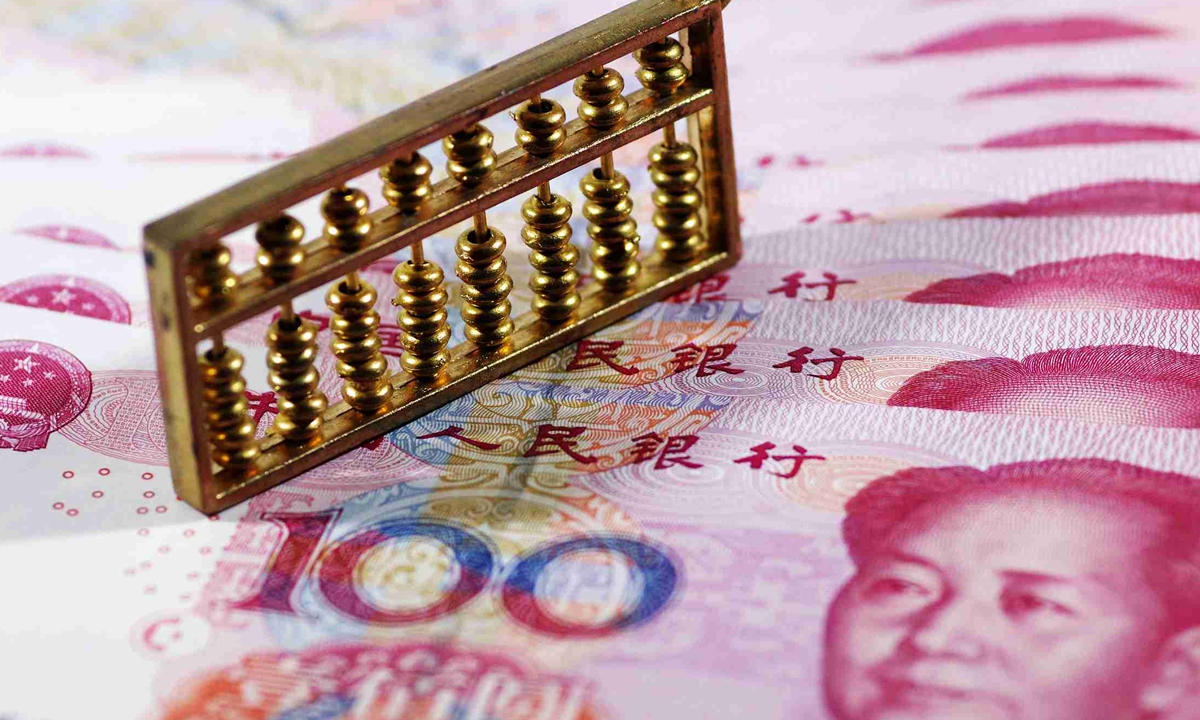
rmb File photo:VCG
https://www.globaltimes.cn/page/202304/1289908.shtml
Nachdem Kriegstreiber Xi Putin damals bei den Olympischen Spielen in Peking grünes Licht gab, in die Ukraine einzumarschieren, das Ganze aber gründlich in die Hose ging und sich nun eine globale Krise daraus ergeben hat, gibt sich China nun als Friedenstaube, sei es mit seiner Global Security Initiative oder seinem 12- Punkte Ukrainefriedensplan, zudem es nun auch Kontakt mit Selensky aufnimmt, nachdem dieser Xi nach Kiew zu einem Staatsbesuch einlud, was dieser aber nicht tat, um seinen Kompagnon Putin nicht zu verärgern. So aber spielt es jetzt den angeblich neutralen Vermittler und will sich dadurch als Weltfriedensmacht inszenieren, zudem sei der chinesische Ansatz ganzheitlicher und gradueller als der westliche und „fernöstliche Weisheit“, die weltweit immer mehr Zustimmung finde, auch in den USA:
“Xi’s call with Zelenskyy demonstrates responsibility of a major country: Global Times Editorial”
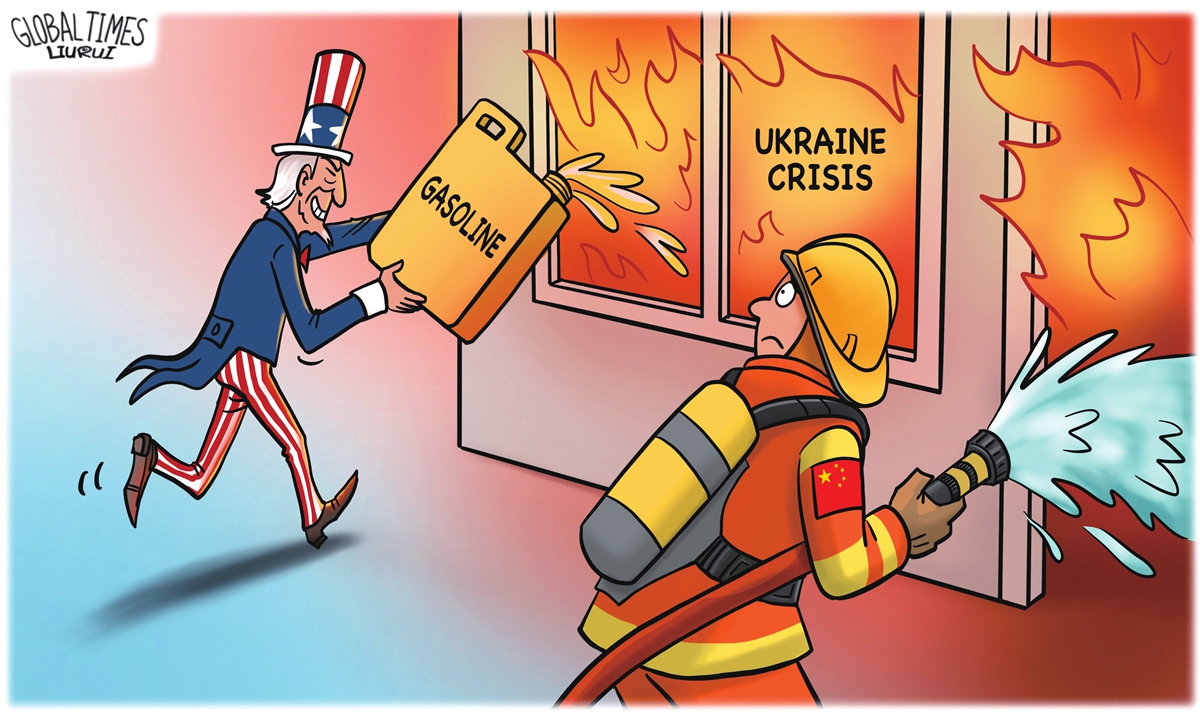
Illustration: Liu Rui/Global Times
(…)Different from the „duel“ approach advocated by some in the US and the West, China provides a different path full of Eastern wisdom. It sees the Ukraine crisis as a complex and difficult-to-untangle web, but not all of the knots are dead ones. It is possible to slowly untangle the knots one by one, and ultimately achieve a comprehensive „escape“ from the crisis. Gradually decomposing complex contradictions, patiently and steadily reaching the core of the problem requires enormous political wisdom, patience, and perseverance, but it is also the best solution that people can currently see. In fact, as time goes by, many countries, including Russia and Ukraine, as well as others in Europe, have gradually recognized or partially accepted China’s proposed solution. There is also an increasing number of voices within the US that are saying, „The world should listen to China’s voice.“
https://www.globaltimes.cn/page/202304/1289892.shtml
Nach dem Xi- Selensky- Telefongespräch entsendet China nun einen Sondergesandten für die Vermittlungsversuche:
“China’s special envoy to Ukraine will play positive role in promoting peace talks: Foreign Ministry
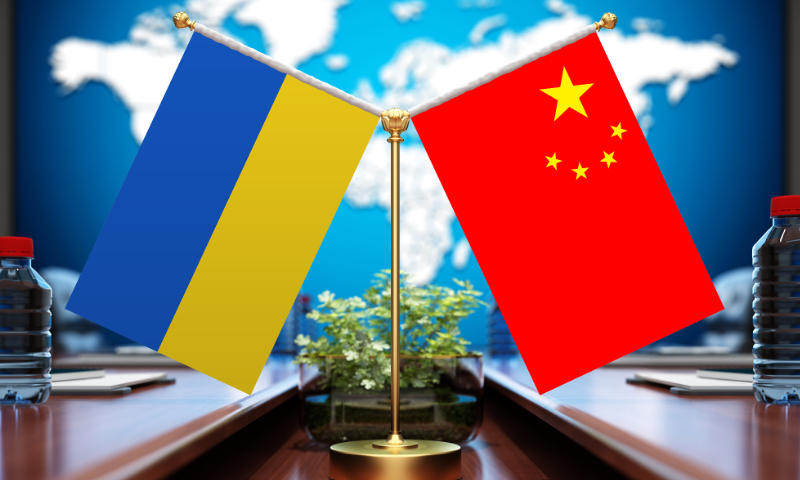
National flags of China, Ukraine Photo: VCG
The special representative of the Chinese government to Ukraine will be someone who is familiar with relevant affairs and can play a positive role in promoting peace talks, a Chinese Foreign Ministry spokesperson said on Thursday, one day after Chinese President Xi Jinping and Ukrainian President Volodymyr Zelenskyy talked on the phone discussing bilateral ties and the Ukraine crisis.
https://www.globaltimes.cn/page/202304/1289915.shtml
Währenddessen versucht China seine Stellung in Zentralasien weiter zu festigen. Nachdem XI zuvor schon ein persönliches Treffen mit den CAS ohne Einladung Putins hatte, findet nun trotz des zwischenzeitlichen Skandals um den chinesischen Botschafter, der die Souveränität der zentralasiatischen Staaten infrage gestellt hatte und dafür gerügt wurde, der erste China-CAS- Gipfel statt.
“First China-Central Asia Summit to convene in Xi’an to discuss substantial cooperation results and future
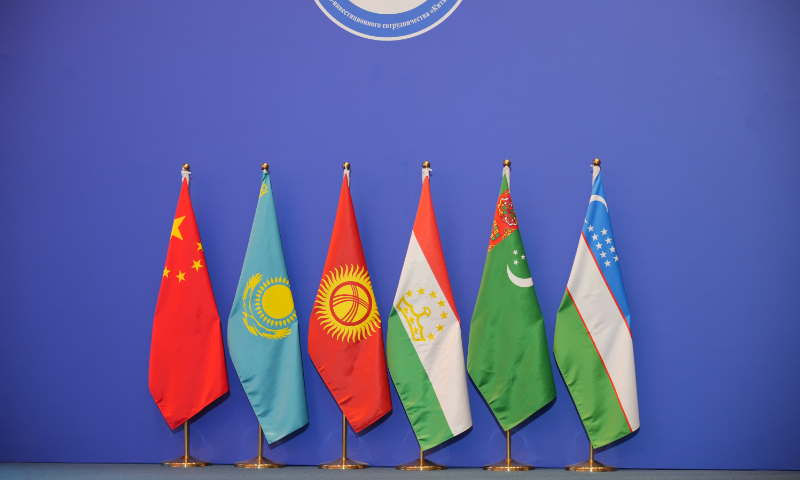
Photo: VCG
https://www.globaltimes.cn/page/202304/1289918.shtml
Zeitgleich findet in Indien der SCO- Gipfel statt, wobei auch der chinesische Verteidigungsminister entsandt wird und zudem erklärt wird, dass man versuchen werde die chinesisch- indischen Grenzstreitigkeiten und andere Differenzen überwinden zu wollen:
“”Chinese defense minister attends SCO meeting in India to enhance security cooperation
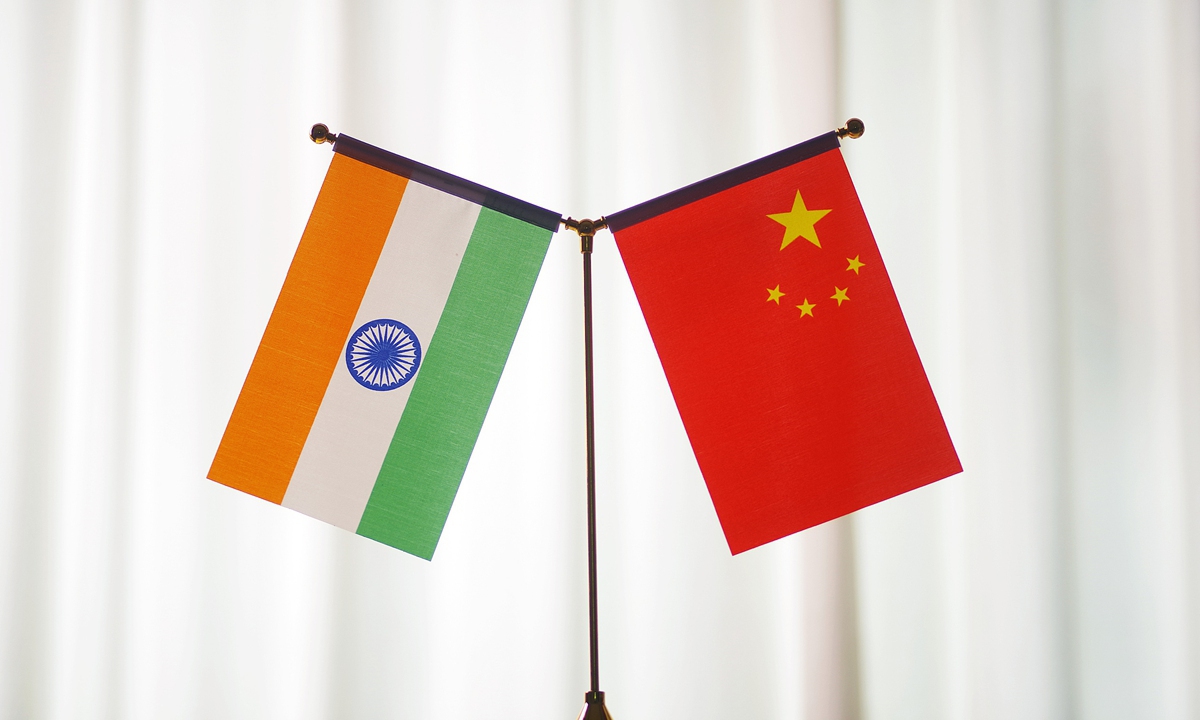
China India Photo:CFP
https://www.globaltimes.cn/page/202304/1289920.shtml
Die Evakuierungsmissionen für Chinesen wird langsam zur Routine: Lybien, Yemen , jetzt Sudan. Stolz verkündet man, dass die PLAN sich schon gut im Golf von Aden etabliert hat und das Ganze auch ein Test und auch Ausdruck der neuen Kampfbereitschaft der chinesischen Militärmarine sei und ihrer zukünftigen Rolle auf den Weltmeeren. Zhenghe lässt grüssen. Naja, vielleicht werden ja auch ein paar Deutsche mit chinesischen Schiffen evakuiert, wenn sie es sonst nicht schaffen .Die uberhastete Evakuierung in Afghanistan war ja gerade vergessen.
“PLA naval vessels evacuate more than 1,300 Chinese and citizens of 5 other countries from Sudan
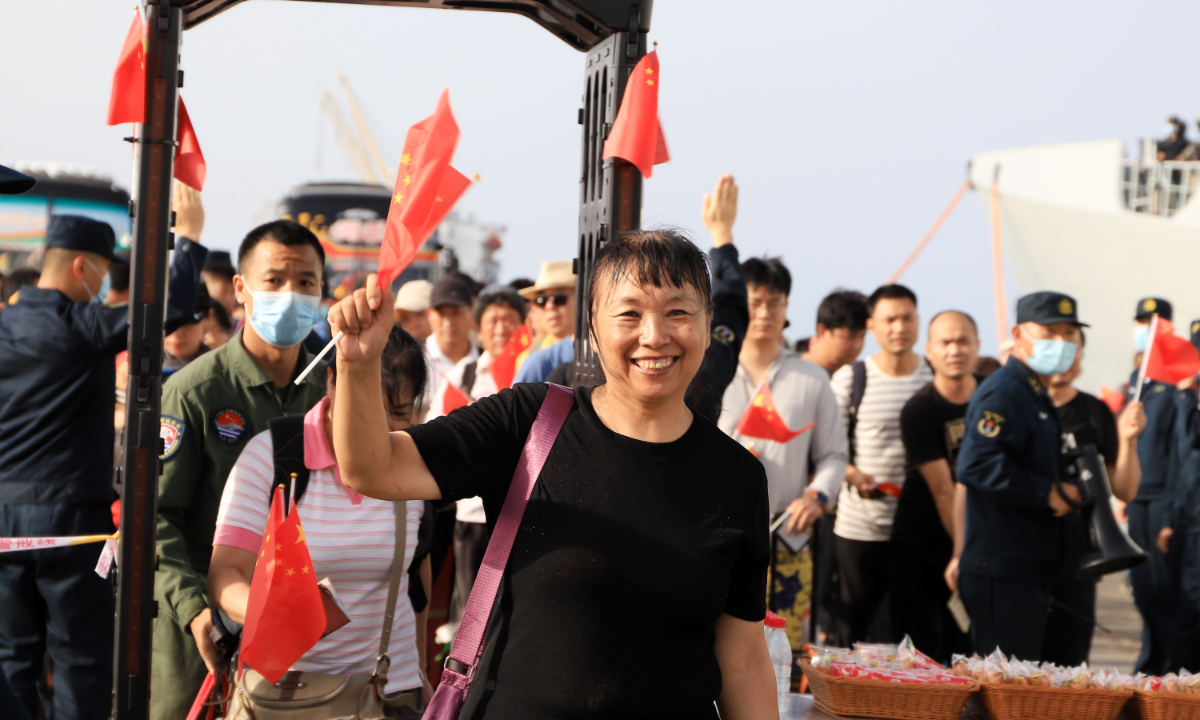
Photo: Wu Kangci
(…) With the entry of new domains and new advanced forces, the voyages of new warships continue to extend, and the pace of development of the far-sea defense combat equipment and force system is constantly accelerating. The comprehensive combat capabilities of the Navy have been greatly improved in terms of overall capability. At the same time, this non-war military operation further tests the actual combat capabilities of the Chinese Navy, once again proving that the Chinese Navy can play a significant role in the depths of the ocean.
https://www.globaltimes.cn/page/202304/1289902.shtml
Nicht nur zu See, sondern auch in der Kuft will China die Lufthoheit gegenüber den USA, vorerst noch filmisch. Jetzt gibt es auch den chinesischen Top Gun: „Born to fly“, der sich von billigem und effekthascherischen US-amerikanischen Hollywoodblockbusterpopcornkino vor allem in seinem patriotischen Gehalt, Teamgeist statt westlichem Individualismus und Realismus unterscheide und wohl auch den Standard für künftige chinesische Produktionen setzen soll:
“Spotlight on PLA test pilots, ‚Born To Fly‘ sets standard for Chinese air combat films

Photo: VCG
However, the movie is not just a hit with military buffs. General audiences who have seen the film have been truly touched by the fact that almost every story in the film is anchored in realism, while marveling at the development of China’s aviation industry as one in which an exceptionally outstanding group of people have spared no effort to break through foreign blockades, and advanced the development of a powerful nation of science and technology.
Undoubtedly, Born To Fly is a patriotic film created by China’s modern film industry against the backdrop of continuously catching up with the production standards of top international film industries.
Undoubtedly, as a film in the „air combat“ genre, Born To Fly has been called China’s answer to US blockbuster Top Gun: Maverick, but has been negatively portrayed in Western media reporting. Compared to the commercially successful popcorn movie whose plot does not stand up to scrutiny, Born To Fly is not inferior, and may even become a new benchmark for similar films in China.
https://www.globaltimes.cn/page/202304/1289891.shtml
Auch im All will man voran. Bis 2035 soll ein eigenes Satellitennavigationssystem wie GPS und Gallileo auf neuester Technologie aufgebaut werden:
“China to build integrated positioning, navigation system based on next generation of BDS by 2035”

BeiDou
https://www.globaltimes.cn/page/202304/1289884.shtml
China will nicht noch mehr Kohlekraftwerke als schon geplant bauen, sondern jetzt auch noch Verdoppelung der Atomkraft und kriegt ein dickes Lob von der IAEA dafür.Irgendwie soll das dann alles ein Beitrag zu mehr Klimaschutz sein. Naja, ob man vielelicht auch mehr AKWs brucht, um mehr Plutonium für eine Aufrüstung mit ICBMs sicherzustellen, wird anders als im Falle Irans nicht Aufgabe der IAEA sein, da China eben eine der 5 erlaubten Atommächte ist, die allesmat den UNO- Sicherheitsrat als Nuklearclub stellen.
“IAEA director general hails China’s nuclear energy efforts to combat climate change”
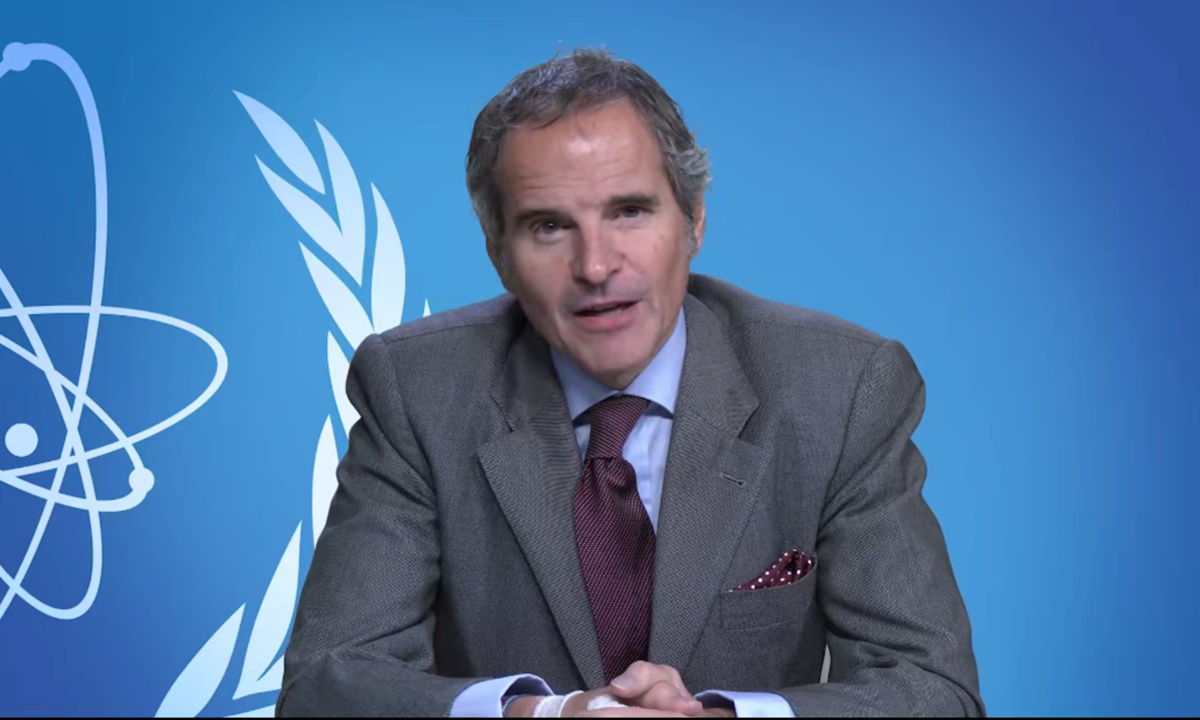
International Atomic Energy Agency (IAEA) Director General Rafael Grossi delivers a video speech at the China Nuclear Energy Sustainable Development Forum. Photo: screenshot of the video speech
https://www.globaltimes.cn/page/202304/1289903.shtml
Nach der etwas mau verlaufenen Kantonmesse, wird Kanton mal wieder als Schrittmacher der chinesischen Modernisierung gefeiert. Hier am Beispiel des Obstmarktes ,obgleich man sich fragt, ob es nihct wichtiger und strategischere Wirtschaftsbereiche gibt. Die vorbildliche Modernisierung: Zum einen Riesentrucks, ein digitalisierte Markt mit Informationen und Preise in Echtzeit. Ebenso will. man das Multimodule See-Schienensystem ausbauen, das bisher nur 4%desGuterumschlagsausmacht,während das bei entwickelten Ländern 40%ausmacht..Ebenso würde durch die BRI nun eine Internationalisierung des Obstmarktes erfolgen, da neue exotische Obstarten auf den chinesischen Markt kamen und umgekehrt .Ist der Obstmarkt so repräsentativ? Bezeichnenderweise wird die Kantonmesse ausgeblendet,von der der Chinapolitan Newsletter des CIDW gerade meldete, dass die für China recht enttäuschend ausgefallen sei.
News analysis: Chinese modernization will bring great benefits to the world
A recent trip brought me to the southernmost point of the city of Guangzhou, capital of South China’s Guangdong Province. Situated at the mouth of the Pearl River, surrounded by the wonders of modern China (the area is flanked on both sides by the Shenzhen-Zhongshan Link and the Shenzhen Bao’an International Airport), are gigantic warehouses built on what a few years ago was just marshland. Here, I had some thoughts about Chinese modernization and how it may look in the decades to come.
The southern province, long considered a pace-setter of the country’s reform and opening-up that began in the late 1970s, has just been visited by China’s top leader, who asked the province to be a trailblazer on the Chinese path to modernization.
https://www.globaltimes.cn/page/202304/1289854.shtml
Nach Baerbocks Chinabesuch und der Shanghaier Automesse ,die den Siegeszug chinesischer EVs feierte, nun der chinesische Handelsminister in Deutschland. Hervorgehoben wird das Treffen mit dem Dresdener Bürgermeister, dem Chef des Bundeskanzleramts und Söder. Wirtschaftsminister Habeck scheint da außen vor und um die Grünen scheint man bewusst einen Bogen zu machen:
Chinese commerce minister discusses EV, digital economy, new energy cooperation with German officials
By GT staff reporters Published: Apr 27, 2023 07:11 PM
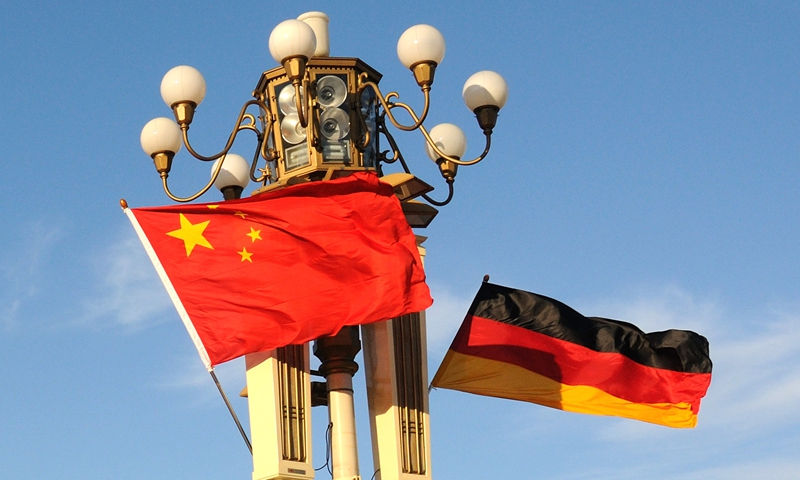
China Germany: Xinhua
China’s commerce minister met with senior officials and business communities in Germany, aiming to promote the implementation of bilateral economic and trade consensus, maintain the stability of industrial and supply chains, and boost cooperation in various fields, such as electric vehicles (EVs) and new energy.
Analysts pointed out that China and Germany are complementary in global industrial and supply chains, and have huge potential for expanded cooperation. The bilateral meetings will further boost cooperation in trade and industries.
On Wednesday and Thursday, Chinese Minister of Commerce Wang Wentao met with representatives from the German business community separately in Berlin, including executives from German Mechanical Engineering Industry Association, German Chamber of Commerce and Industry, ZEISS Group and TRUMPF, according to the Ministry of Commerce of China (MOFCOM).
Wang’s visit to Germany is part of his Europe tour.
Wang said that the Chinese modernization process would provide a broad market with many cooperation opportunities for enterprises from Germany and other countries.
The German business representatives expressed their firm confidence in cooperation with China as well as their willingness to further expand trade and investment with China and explore more opportunities in the Chinese market.
On Wednesday, Wang met with Dirk Hilbert, Mayor of Dresden, in Berlin. The two sides held a candid and practical discussion on such topics as deepening local trade and economic cooperation between the two countries, promoting green and low-carbon transition and digital transformation, and strengthening cooperation on EVs and new energy, MOFCOM confirmed.
On the same day, Wang met Wolfgang Schmidt, Head of the Federal Chancellery of Germany. They agreed to expand traditional cooperation while tapping potential in emerging areas such as new energy and the digital economy. They would further create a fair and equitable environment for Chinese and German businesses.
On Tuesday afternoon, Wang met with Markus Soeder, Bavarian Minister-President, in Munich. They discussed such topics as expanding bilateral trade and investment, upholding the stability of industrial and supply chains, and stepping up green and low-carbon cooperation.
China and Germany are important economic and trade partners, and their industrial and supply chains are deeply integrated, a spokesperson from MOFCOM said in March.
Zhang Xiang, visiting professor with the Engineering Department of Huanghe Science and Technology University, cited EVs as an example.
„China is ahead in new-energy and intelligent connected vehicles, while Germany is strong in traditional car-making technology and precision machining. In the field of EVs and new-energy vehicles, China and Germany have strong complementarity and room for cooperation,“ Zhang told the Global Times on Thursday.
Zhang said that German automakers work with Chinese suppliers, and vice versa.
A manager of a Chinese LiDAR supplier also told the Global Times that they serve global automakers, including those from Germany.
„China’s manufacturing and research and development (R&D) on LiDAR, which helps the vehicle sense and understand its surroundings, have taken a global leadership position. If an automaker wants to equip its car with autonomous driving system, it can’t avoid advanced LiDAR systems and products made in China,“ said the manager, who declined to be named.
Over the years, China-Germany economic and trade cooperation has maintained high-quality development momentum, Chen Jia, an independent analyst on global strategy, told the Global Times.
„China has formed a long-term cooperative partnership with Germany’s superior industries in high-tech. The bilateral manufacturing industrial chain has been deeply integrated, especially in the high-precision processing of industrial equipment, parts and materials,“ said Chen.
Chen noted that an efficient division of labor cooperation has been established between China and Germany, resulting in competitiveness in global industrial chain.
According to MOFCOM statistics, China has been Germany’s largest trading partner for seven consecutive years, and Germany has been China’s largest trading partner in Europe for 48 consecutive years.
The two-way investment between the two countries has reached $51.4 billion in the first quarter this year. By 2022, over 5,000 German companies had invested in China and over 2,000 Chinese companies had been operating in Germany, official data showed.
One of the latest examples is the Volkswagen Group, which on April 18 announced plans to invest 10 billion euros ($10.95 billion) to set up a new company in Hefei, East China’s Anhui Province to speed up R&D and innovation on intelligent connected vehicles.
https://www.globaltimes.cn/page/202304/1289912.shtml
Desweiteren wird das Ende der Pandadiplomatie mit den USA verkündet und nach dem Tod von Panda Lele in einem US-Zoo gibt es nun ein herzzerreisendes Willkommen für Panda Yaya-als habe der 20 Jahre in einem US-Gefangnis als politischer Gefangener gesessen und komme nun frei:
“Giant panda Ya Ya returns home to warm welcome”
https://www.globaltimes.cn/page/202304/1289904.shtml
Yaya macht noch weitere Schlagzeilen. Die Global Times kritisiert CNN, dass Chinas Rummel um den Panda Ausdruck von Nationalismus sei. Dies sei eine Fehlinterpretation und eine Herabwürdigung der echten warmen Gefühle des chinesischen Volkes für Yaya, der „einer von uns ist“.
“CNN arrogantly distorts Chinese care about giant panda Ya Ya, catering to political correctness
By Global Times Published: Apr 27, 2023 11:16 PM
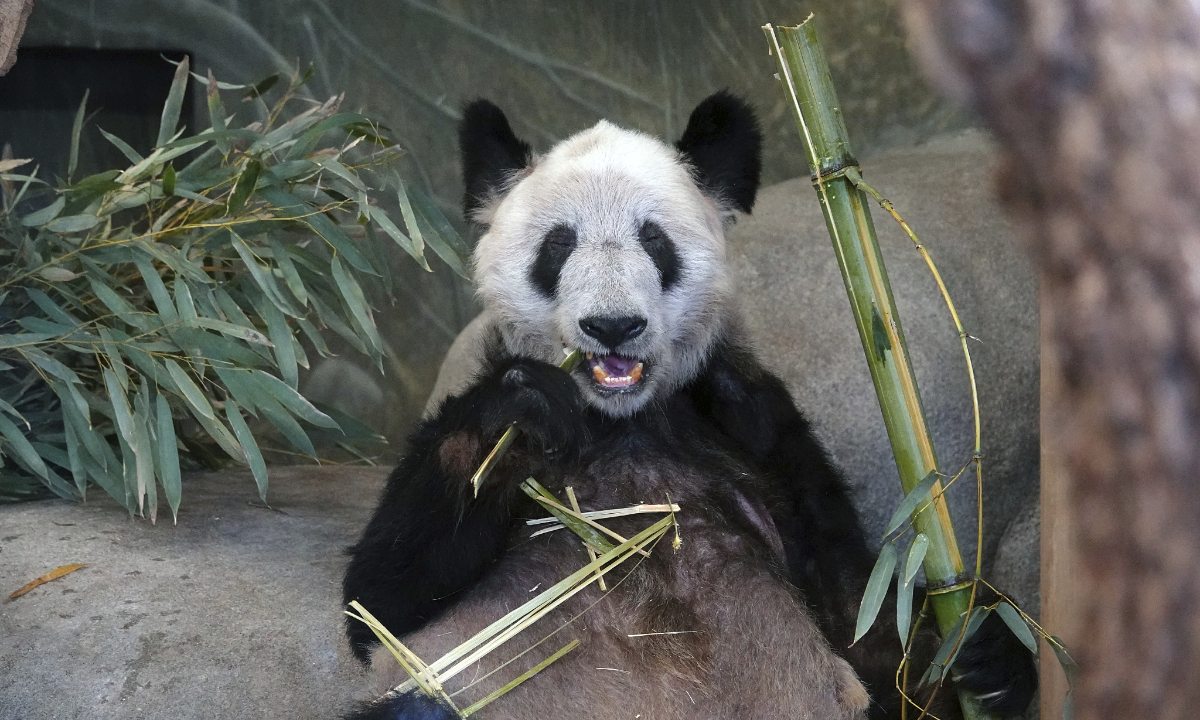
Ya Ya, a giant panda at the Memphis Zoo, eats bamboo in Memphis, Tennessee, US, April 8, 2023. Photo:VCG
On Thursday, the giant panda Ya Ya, who had been living in the US for 20 years, landed in China. Ya Ya’s return was highly anticipated and joyful.
However, CNN has published an article on Wednesday, entitled, „‚Bring Ya Ya home‘: How a panda in the US turbocharged Chinese nationalist sentiment,“ using the panda’s homecoming trip to create hype. CNN not only misinterpreted Chinese people’s attention to Ya Ya as a symbol of Chinese nationalism, but also claimed that the Chinese media uses pandas to fan anti-US sentiment.
CNN discusses Chinese people’s concerns about giant pandas from the perspective of nationalism. This undoubtedly caters to the politically correct atmosphere in the US, which aims at distorting the image of China, and inciting the unhealthy mood and atmosphere towards China.
Xu Liang, an associate professor at the School of International Relations, Beijing International Studies University, noted that CNN’s perspective is full of self-abasement and arrogance. It is quite normal for Chinese people to care about the panda, as Ya Ya is like one of us. CNN’s reaction is excessive. Putting oneself in another’s shoes, would Americans not care about the well-being of American citizens overseas? Moreover, the panda is a national treasure of China.
Since the two giant pandas were sent to the National Zoo in the US in 1972, to the return of Ya Ya to China, the giant panda has played a pivotal role as a symbol of friendly exchanges between China and the US. These cute giant pandas, being unique to China, carry a special mission.
Lending giant pandas is not just a „diplomacy,“ nor is it just to bring more tourists to local zoos. The key is to carry the friendly and close cultural exchanges between China and other countries and regions.
However, Western media, starting from their own perspective, repeatedly emphasizes the political symbolism of giant pandas in reporting on „panda diplomacy,“ and even turns it into a weapon to demonize China’s image. Such reports are a misinterpretation of „panda diplomacy“ and a destruction of friendly exchanges between the Chinese and American people.
Xu pointed out that „panda diplomacy“ has always been tasked with the mission of peace and friendship, and it itself is borderless and transcends time and space. Because peace and friendship are important connotations of a community with a shared future for mankind. „Panda diplomacy“ is essentially to promote friendly exchanges between the Chinese and American people, endowing the national treasure with special diplomatic significance.
„Western media’s demonization of panda diplomacy is essentially a need to suppress China in recent years, and it is also a typical manifestation of psychological distortion,“ Xu said.
Americans have shown a positive and keen interest in pandas. This can be reflected in many American panda fans‘ social media accounts. The systematic demonization of non-political Chinese cultural elements such as pandas by the US media is a manifestation of the return of Cold War thinking. This shows that such media have not played a good role in building bridges between two sides, but instead acted as political henchmen.
Regardless of yesterday, today, or tomorrow, and no matter where we are in the world, it cannot be denied that pandas have always carried the mission of promoting peace and friendship. And this is precisely what the turbulent world today needs to inject stability and certainty.
https://www.globaltimes.cn/page/202304/1289931.shtml
Zu Taiwan diesmal keine kriegsträchtige Meldungen, außer eben, dass sich die Südkoreaner da nun auch noch einmischen, stattdessen die jüngsten Erfolge der Einheitsfront Chinas i Rahmen der Global Civilizational Initiative: Taiwans Daoisten feiern mit den chinesischen Daoisten den gemeinsamen Gott Xuandi, den Gott des Nördlichen Himmels und betonen, dass ihre Religion gemeinsame „chinessische Kultur“ sei.. Das zu all jenen, die immer sagen, dass der Daoismus wie auch Konfuzianismus und Buddhismus keinen Gott oder Götter kennen und daher keine Religionen sein könnten. interessant auch, dass das gemeinsame chinesische Blut beschworen wird Spätestens da wird es völkisch und politisch. Und wie beim Chinabesuch Ma Yingjius wird auch hier offiziell der Ahnen gedacht.
Cross-Straits Taoists worship ancestors in Wudang Mountain
By Zhang Ni Published: Apr 27, 2023 10:17 PM
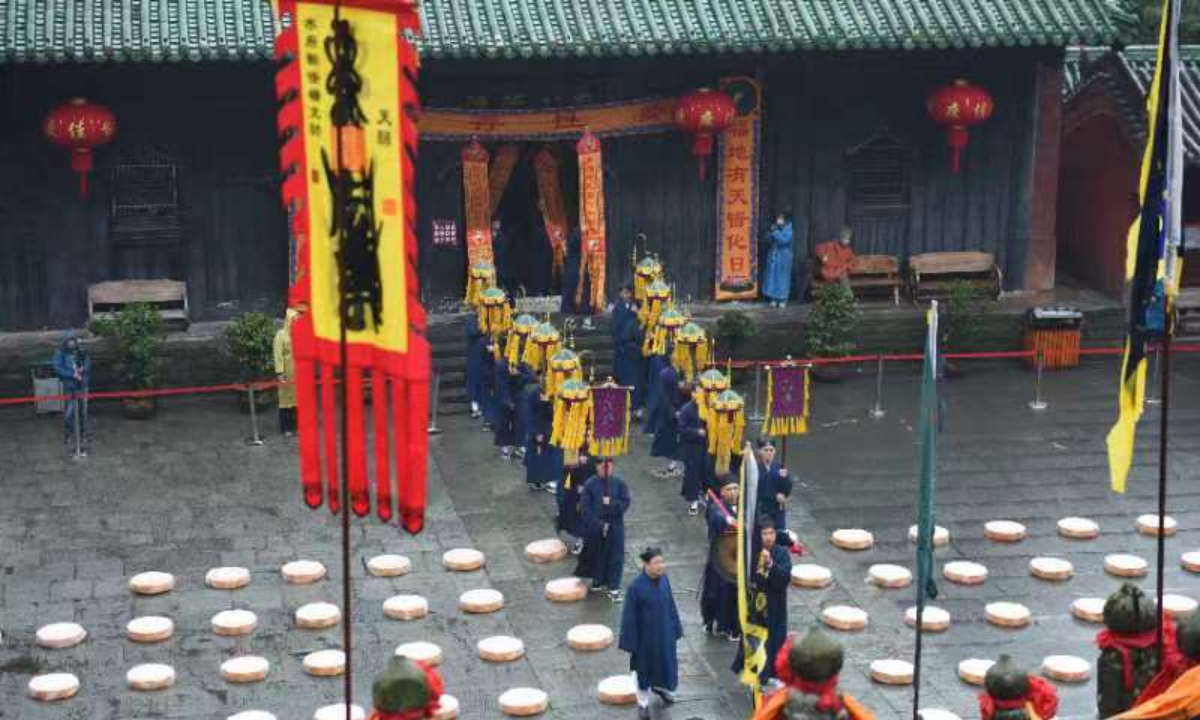
Photo: Zhang Ni/GT
„I would like to extend our warm welcome to the disciples of Xuandi from Taiwan, whom we haven’t seen for a long time,“ said Li Guangfu, president of Chinese Taoist Association.
From April 22 to 23, the cultural seminar themed on „shared love and world harmony“ was held in the Wudang Mountain in Shiyan, Central China’s Hubei Province, during which the Taoist figures from the Chinese mainland and Taiwan paid respects to ancestors and Xuandi, or the God of the Northern Sky.
More than 200 representatives from over 30 Taoist temples and organizations from Taiwan, and local Taoist associations throughout the Chinese mainland attended the seminar.
„I am really glad to return to the Wudang Mountain for the first time after the pandemic and celebrate Xuandi’s birthday together with the mainland Taoists. I am home now!“ Wang Shuang Hsiu, vice president of the General Association of Chinese Taoism, told the Global Times. „Our visit is aimed to renew the kinship, friendship and nostalgia across the Taiwan Straits. We hope to bring these feelings back to Taiwan.“
Blood ties across Straits never to be broken
The third day of the third lunar month, which fell on April 22, 2023, marks the birthday of the Xuandi. All representatives attended the ceremony of paying respects to Xuandi and praying for blessings in the Wudang Mountain, feeling that blood is thicker than water. At the following seminar, they called for establishing an institutional platform for exchanges and holding regular Taoist activities.
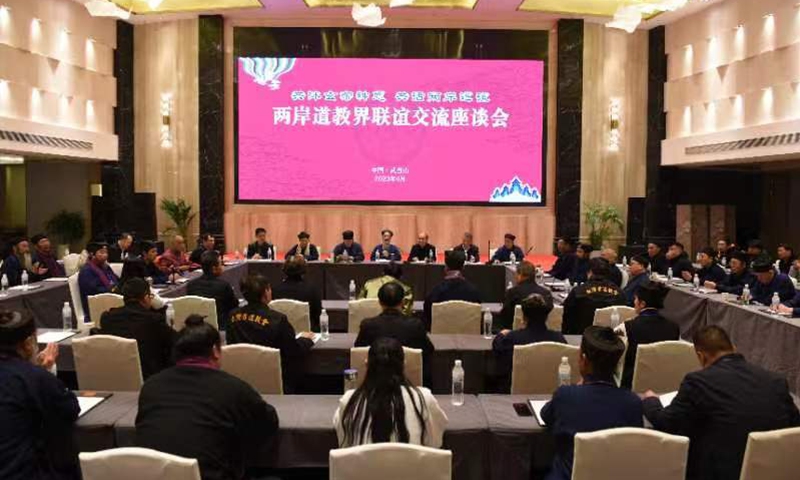
Photo: Zhang Ni/GT
According to Li Guangfu, Xuandi is the main deity of the Wudang Mountain. Taking an important position in Taoism, the culture of Xuandi represents an essential part of the traditional Chinese culture. For over 1,300 years, his beliefs of saving the nation and the people, relieving misery, as well as promoting kindness and punishing evil have been spread from the mountain to other parts of China. At present, Taoist temples worshiping Xuandi have been built in the island of Taiwan and all over the world. According to statistics, there are 600 registered temples of such kind in Taiwan island, and additional 4,700 dedicated to the god’s statue.
Lin Ming Hua, vice president of the Taiwan Taoism Association, said that no matter what obstacles there are, the same blood ties will never be broken. The core belief of Taoism is heaven and earth as well as ancestors, so it is very important to teach and inspire believers about this. In order to promote the recognition of the same cultural origin, everyone should work together to promote the traditional Chinese culture.
Zhang Gaocheng, vice president of the Chinese Taoist Association, told the Global Times that this activity has played a prominent role in enhancing cultural exchanges and kinship between the two sides of the Taiwan Straits. „The frequent communications between religious bodies can expand the scope of belief and scale of believers. It may be a simple religious activity in the beginning, but it will gradually become a cultural event.“
Frequent contacts bring both sides closer
Over the years, the across-Straits Taoist circles have conducted many friendly exchanges. A few years ago, nearly 200,000 believers in Taiwan came to the Wudang Mountain to worship ancestor around Xuandi’s birthday. And the Xuandi’s statue from the Wudang Mountain had also been sent to Taiwan for three times, receiving warm welcome by believers.
Liu Chung Yu, executive vice chairman of the Chinese Cross Straits Interchange Association and representative of Kaohsiung Tao-Te-Yuan Temple, still had a fresh memory of the grand ceremony. He said, „It also proves that not only the compatriots but also the gods across the Straits should conduct integrated development, which is true cultural integration.“ In 2016 and 2018, his temple invited guests from around the world to conduct Taoist exchanges. In 2024, it will invite 1,000 guests to promote the integrated development of Taoism and peaceful development across the Taiwan Straits, he added.
According to Wang, there are 16 million Taoist believers from 70 percent of the total households in Taiwan. Before the pandemic, about 10,000 believers came to worship gods in Taoist temples every year.
Striving for world harmony
As time goes by, Taoism is also faced with a new challenge for its development across the Taiwan Straits and the world at large. „How to have more young people believe in Taoism and carry forward the religion of our Chinese nation requires our joint efforts. We should let them understand the spiritual significance of Taoist gods,“ said Lo Chien Chih, chairperson of Chiayi Zhen An Gong in Taiwan.
„The Taoist ideas and methods of practice are perfect for the more and more stressful modern society,“ Karine Martin, chairman of the French Taoist Association, told the Global Times. „Taoism teaches us how to relax and helps us rectify our thoughts. For example, Tao Te Ching, a classic of Taoism, advocates the principles of letting nature take its course and that the supreme good is like water.“
Liu Zhongyu said that the Taoist culture not only contributes to the believers‘ wellbeing, but also to social harmony.
https://www.globaltimes.cn/page/202304/1289925.shtml
Währendessen machen auf der anderen Seite der Taiwanstraße andere Themen Schlagzeilen, Zum einen die Hanguang- Militärmanöver, die Taiwans Kampfkraft nach den chinesischen Drohmanövern zeigen sollen, wobei interessant ist, ob die dort erwähnte „US-built Joint Theater Level Simulation platform“ schon mit KI betrieben wird.
Thu, Apr 27, 2023 page1
- War games to tackle the latest PLA threats
HAN KUANG: Non-stop tabletop war games for five days next month would test the ability of personnel to coordinate a response to a hypothetical Chinese invasion
- Staff writer, with CNA
Taiwan’s annual war games this year would simulate responses to a potential Chinese invasion based on the latest threats posed by the Chinese People’s Liberation Army (PLA), the Ministry of National Defense said yesterday.
As in previous years, this year’s Han Kuang drills would be held in two stages, the ministry said.
The tabletop war games phase would be held from May 15 to 19 and the live-fire exercise component is scheduled for July 24 to 28, said Major General Lin Wen-huang (林文皇), who is in charge of planning at the ministry.
The computerized war games would be conducted using the US-built Joint Theater Level Simulation platform, which simulates joint, combined and civil-military operations at an operational level, Lin said.
The simulations would be held around the clock for five days in a row to test the ability of military personnel to coordinate and launch a response to a hypothetical Chinese invasion, he said.
The main emphasis of the live-fire drills would be on testing the military’s ability to preserve its forces in the event of a full-scale invasion and to conduct “maritime interceptions” to counter a simulated attempt by the PLA to blockade Taiwan.
That would include using civilian airports and dispersing air assets, as well as disguising forces on the ground, and integrating sea, air and land forces to attack enemy forces and amphibious assault ships, Lin said.
He did not directly address a question about whether the Han Kuang exercises would simulate a response to China’s newest aircraft carrier, the Shandong, which recently this month engaged in its first-ever exercises in the western Pacific in waters not far from Taiwan.
Taiwan’s drills would simulate all kinds of recent PLA maneuvers and deployments that pose a threat to the country, he said.
He also did not directly comment on whether a military aircraft emergency landing and takeoff drill would be staged for the first time at a civilian airport in eastern Taiwan in July during the live-fire portion of the exercises, as the Central News Agency (CNA) reported last month.
The general said that civilian airports would be an important asset for the military to increase its flexibility and make sure its air assets could survive longer, which is why the ministry would simulate the scenario.
An unnamed source on March 28 told CNA that the drill to be staged at Taitung Fengnian Airport would simulate a scenario in which Taiwan’s military airports and airstrips are severely damaged by enemy fire, requiring fighter jets to land at civilian facilities or sections of freeway designated as makeshift runways.
If it went ahead, it would be the first time that such a drill is staged at the airport since it opened in 1981.
The Han Kuang exercises have been held annually since 1984 to test the combat readiness of Taiwan’s military branches.
https://www.taipeitimes.com/News/front/archives/2023/04/27/2003798679
Taiwans Nachrichtendienste werden jetzt scheinbar real time mit den Five Eyes zusammengeschaltet. Der KMT scheint das gar nicht zu gefallen und fragt, was da vor sich geht:
Thu, Apr 27, 2023 page1
- Taiwan has ‘real time’ Five Eyes links
WATCHING CHINA: A DPP lawmaker said that Beijing would not dare set up one of its ‘police stations’ in Taiwan, but it would use third parties to manipulate people
- By Lu Yi-hsuan and Kayleigh Madjar / Staff reporter, with staff writer and CNA

Taiwan maintains “real-time” intelligence sharing with the Five Eyes alliance of the US, the UK, Canada, Australia and New Zealand, National Security Bureau (NSB) Director-General Tsai Ming-yen (蔡明彥) said yesterday.
Tsai made the remark during a legislative session in Taipei after a lawmaker asked if Taiwan had such exchanges with the group.
Chinese Nationalist Party (KMT) Legislator Charles Chen (陳以信) said he had discovered that the NSB had been upgrading its computer equipment last year and this year “to the level of those used by intelligence units in foreign countries.”
Chen asked Tsai if the upgrades could help Taiwan better connect to the Five Eyes.
The bureau had allocated funds to establish an “instant online reporting and communication mechanism” with foreign nations, Tsai said.
Chen asked if the upgrade would enable the bureau to share and receive intelligence from the Five Eyes alliance.
Tsai said that the NSB would do so via “a secure and encrypted system.”
Chen asked if the bureau was already sharing intelligence with the Five Eyes, to which Tsai said: “Yes, and in real time,” without elaborating.
Tsai reported to lawmakers what measures the bureau was taking to prepare for next year’s presidential and legislative elections, including its efforts to counter anticipated efforts by China to interfere in the vote.
Asked whether the NSB has a response to China’s attempts to expand its sphere of influence abroad, Tsai said that if a case arises that is strong enough to be prosecuted, it would be handled by the appropriate agency.
However, China’s tactics differ in Taiwan from other places such as the US and Europe, he added.
Beijing has allegedly established secret overseas “police stations” that US and other nations believe are tasked with collecting information on people who criticize the Chinese Communist Party.
Beijing denies the allegations.
Cases of Taiwanese being detained in China have also come to light recently, including reporters filming Chinese People’s Liberation Army exercises earlier this month and Gusa Press (八旗文化) editor-in-chief Li Yanhe (李延賀), also known ask Fucha (富察), who was detained in Shanghai last month.
Lawmakers also expressed concern that Beijing has stepped up its monitoring of and threats toward Chinese living in Taiwan.
Beijing would not dare set up one of its “police stations” in Taiwan, but it could work through third parties to monitor or manipulate Chinese and their partners, as well as Taiwanese with businesses in China, Democratic Progressive Party (DPP) Legislator Lo Chih-cheng (羅致政) said.
Tsai said there is no doubt that this is happening, but the bureau can only keep close watch for any contraventions of the law.
If any are found, it would transfer the case to prosecutors, he said, adding that there are some cases being investigated.
The bureau’s role is to collect and share intelligence with other agencies about potential Chinese interference, he said.
This is different from how China operates in other countries, where it can set up physical workstations or travel agencies, he added.
https://www.taipeitimes.com/News/front/archives/2023/04/27/2003798678
Unerwähnt in der Global Times, stellt die Taipeh Tomes einen wichtigen Sieg für die USA bei der Gewinnung von Pazifikinseln nach dem Philipinendeal heraus. Hohe Ehre für die Pazifikinsulaner. Der erste US-Präsident ,der Papua Neuguinea besucht.
Fri, Apr 28, 2023 page1
Biden to make landmark visit to Papua New Guinea
- AFP, PORT MORESBY

US President Joe Biden is set to become the first sitting US president in at least a century to visit Papua New Guinea, Papua New Guinean Minister of Foreign Affairs Justin Tkatchenko said yesterday, revealing plans for a brief, but symbolic trip.
The region around the country could prove vital in any possible military conflagration over Taiwan.
Biden plans to stop at Port Moresby next months as he travels between a G7 summit in Japan and a Quadrilateral Security Dialogue summit in Sydney, Tkatchenko said.
“He is coming on the 22nd, in the morning, and will be here for three hours only,” Tkatchenko said, adding that talks were expected to focus on the economy, security and climate change.
Biden’s trip might put the finishing touches on a US-Papua New Guinea Defense Cooperation Agreement that would allow more joint training and the development of security infrastructure.
The presidential trip is a nod toward the country’s rapidly growing strategic importance, as the US and its allies tussle with China for influence across the Asia-Pacific region.
Chinese President Xi Jinping (習近平) visited Port Moresby in 2018 to much fanfare, with Chinese flags hoisted across the capital and his motorcade whizzing past gathered crowds.
The trip was seen as a major diplomatic coup for Beijing. US and Australian officials have been concerned by a rapid uptick in Chinese investment in the resource-rich nation.
There have also been concerns that China has been trying to establish a military outpost, prompting Washington to move toward establishing a joint naval facility at Lombrum on Manus Island.
Construction started in mid-2020, according to the Australian Department of Defence, which is also taking part in the initiative.
Four Guardian-class patrol boats are expected to be based at the facility.
US Department of State records, which date back to then-US president Theodore Roosevelt’s administration in 1901, show that no sitting US president has visited Papua New Guinea.
However, the importance of the region has come more sharply into focus since China and the Solomon Islands agreed on a security pact last year.
The details of the agreement have not been made public — at Beijing’s request — but a draft seen by reporters has provisions that would allow China to deploy troops to the country.
Washington and other capitals have expressed concern that Beijing could also establish a military outpost.
Last month, a state-backed Chinese company won a contract to develop the international port in the capital Honiara, a major victory in Beijing’s quest to gain a strategic foothold in the South Pacific.
https://www.taipeitimes.com/News/front/archives/2023/04/28/2003798745
——————————————————————————————————————————————————
Originalquellen:
—————————————————————————————————————————————————––
US-S.Korea agreements add new danger; ‘extended deterrence’ could trigger ‘another nuclear crisis’ in peninsula
By Yang Sheng
Published: Apr 27, 2023 10:24 PM
US President Joe Biden and visiting South Korean President Yoon Suk-yeol reached a series of strategic agreements on „extended deterrence“ against North Korea, as well as the Taiwan question and the South China Sea issue, drawing firm opposition and strong criticism from the Chinese Foreign Ministry.
Chinese experts warned that if Washington deploys nuclear weapons, including a nuclear-armed submarine, according to US media reports, in South Korea, it could trigger another nuclear crisis in the Korean Peninsula, and Washington and Seoul should take full responsibility for the consequences.
Chinese Foreign Ministry spokesperson Mao Ning responded to the US-South Korea Washington Declaration and the leaders‘ joint statement at a routine press conference on Thursday saying that „the US, in order to realize its own geopolitical interests and disregarding regional security, insisted on making use of the peninsula issue to create tension.“
The actions of the US are full of Cold War mentality, instigate bloc confrontation, undermine the nuclear non-proliferation system, damage the strategic interests of other countries, exacerbate tensions on the peninsula, undermine regional peace and stability, and run counter to the goal of denuclearization of the peninsula. China firmly opposes this, Mao said.
According to the Washington Declaration reached by the presidents of the US and South Korea, the US commits to making every effort to consult with South Korea on „any possible nuclear weapons employment on the Korean Peninsula,“ while Yoon reaffirmed the commitment to South Korea’s obligations under the Nuclear Nonproliferation Treaty.
The US-South Korea alliance commits to engaging in „deeper, cooperative decision-making“ on nuclear deterrence, including through enhanced dialogue and information sharing on growing „nuclear threats“ to South Korea and the region. The two presidents announced the establishment of a new Nuclear Consultative Group to strengthen extended deterrence, and discuss nuclear and strategic planning, according to the document.
Another crisis
According to CNN, Biden and Yoon announced a key new agreement at the White House on Wednesday that aims to deter North Korea, „including a new US commitment to deploy a nuclear-armed submarine in South Korea for the first time since the early 1980s.“
Lü Chao, an expert on Korean Peninsula issues at the Liaoning Academy of Social Sciences, told the Global Times on Thursday that „if the US really deploys nuclear weapons or a nuclear-armed submarine in the peninsula, it’s very likely to trigger another nuclear crisis.“
Lü said based on Pyongyang’s principle of „might for might, frontal match,“ North Korea could take some unprecedented action in response to the US‘ act, such as carrying out an atmospheric nuclear test.
„The possibility cannot be ruled out, and if this happens, Washington and Seoul should be held accountable for their provocation.“
Wang Junsheng, a research fellow of East Asian studies at the Chinese Academy of Social Sciences in Beijing, told the Global Times on Thursday that „the concept of ‚extended deterrence‘ consists of three factors – joint military drills, regular visits of US strategic assets (such as aircraft carriers, submarines, and bombers) to South Korea, and deployment of nuclear weapons in the peninsula.“
Currently, the US and South Korea have already realized the joint drills and the regular visits of US assets, and if the US goes one step further to deploy nuclear weapons, including nuclear-armed submarines, this will definitely result in serious consequences that will not only force North Korea to enhance its development of nuclear weapons and ballistic missiles, but will also worsen China-US tensions, Wang noted.
„The deployment of US nuclear-armed submarines in the region so close to China’s territory is unacceptable, and if the US receives no opposition or retaliation from China, it will deploy more strategic weapons including aircraft carriers and strategic bombers.
So there must be a bottom-line between major powers like China and the US, and if Washington intends to break the balance, the regional situation will get extremely intense,“ Wang said.
China’s attitude
According to US and South Korean media, „China received advance briefings from South Korea and the United States about the Washington Declaration.“
Experts said even though the two countries sought to ease China’s concerns and opposition by informing it in advance, China will still take their actions as a threat and respond according to their real actions.
Han Xiandong, a professor of Korean studies at the China University of Political Science and Law, told the Global Times on Thursday that in addition to the Washington Declaration, the joint statement by Biden and Yoon contains some elements that are provocative to China.
According to the joint statement released on Wednesday, the US and South Korean presidents reiterated the importance of „preserving peace and stability in the Taiwan Strait as an indispensable element of security and prosperity in the region.“ They strongly opposed any unilateral attempts to „change the status quo in the Indo-Pacific, including through unlawful maritime claims, the militarization of reclaimed features, and coercive activities.“
Chinese Foreign Ministry spokesperson Mao responded on Thursday by saying that the Taiwan question is purely China’s internal affair and the core of China’s core interests. The resolution of the Taiwan question is the Chinese people’s own business, and no force will be allowed to intervene.
„The real status quo of the Taiwan question is that both sides of the Taiwan Straits belong to one China, Taiwan is a part of China, and China’s national sovereignty and territorial integrity have never been divided,“ and the separatist forces, as well as the forces of external interference are the „chief culprits in undermining the status quo across the Taiwan Strait,“ Mao said.
„We urge the US and South Korea to be cautious in their words and deeds on the Taiwan question, and not go further down the wrong and dangerous path,“ Mao noted.
Before visiting the US, Yoon made extremely provocative statements on the Taiwan question that seriously damaged China-South Korea relations, as he tried to internationalize the issue, which seriously violates the one-China principle, a political foundation and precondition of the establishment of China-South Korea diplomatic relations, prompting the Chinese side to make solemn representations to the South Korean ambassador to China, according to the Chinese Foreign Ministry on Sunday
According to South Korea’s Yonhap News Agency on Tuesday, when presented his credential to Chinese President Xi Jinping on Monday, South Korean Ambassador to China Chung Jae-ho conveyed Yoon’s invitation to Xi for a visit to Seoul.
Chinese analysts said this shows that Yoon and his team are not aware of the seriousness of their provocative comments on the Taiwan question and their ridiculous diplomatic reaction against China after Yoon made his statement.
Lü said that unless Yoon withdraws his provocative comments on the Taiwan question and makes concrete corrections to his previous mistakes to prove South Korea’s sincerity, it will be absolutely impossible for Seoul to expect China to tolerate or forgive their wrongdoings, let alone a state visit to their country.
Han said, „the Yoon administration has arrogantly miscalculated China, as some of their policymakers believe that China’s economy is in trouble so China needs South Korea more than South Korea needs China. This kind of thinking has encouraged their provocation which they made to please the US, and they believe China will tolerate it.“
The US investment that Yoon received this time, only $5.9 billion, will not pay for South Korea’s aggressive policy against China, as the price is not only reflected in economy and trade but also other sectors, so sooner or later the South Korean people will find Yoon’s unwise diplomatic strategy to be „unsustainable and self-destructive“ and Yoon’s low approval rating will result in a more chaotic internal political situation in South Korea, experts said.
https://www.globaltimes.cn/page/202304/1289926.shtml
“Argentina to use yuan to settle Chinese imports amid global de-dollarization push
By GT staff reporters Published: Apr 27, 2023 06:31 PM Updated: Apr 27, 2023 08:18 PM
Argentina on Wednesday (local time) reportedly announced plans to use Chinese currency yuan to pay for goods imported from China amid an emerging de-dollarization wave pushed by countries and regions in order to decrease reliance on the US dollar.
Argentina’s Economy Minister Sergio Massa announced at a press conference that the South American country will stop using US dollars to pay for Chinese imports and will instead use yuan for settlement. Chinese Ambassador to Argentina Zou Xiaoli was invited to attend the press conference, China Media Group (CMG) reported on Thursday.
Argentina will use yuan to pay for Chinese imports worth about $1.04 billion in April. The use of yuan can accelerate the pace of Chinese imports over coming months, while the efficiency of relevant authorizations will be higher, Massa said.
It is expected that from May, Argentina will use yuan to pay for Chinese imports worth between $790 million and $1 billion per month, he added.
Per data from China’s General Administration of Customs, bilateral trade between China and Argentina recorded 142.85 billion yuan ($20.66 billion) in 2022, up 24.2 percent year-on-year. China’s exports to Argentina came in at 84.8 billion yuan, up 23 percent.
In addition, Massa emphasized that the use of yuan can boost the expectations of Argentina’s net foreign exchange reserves and brings greater flexibility.
Argentina’s central bank announced in January that Argentina and China have officially expanded their currency swap agreement, which will strengthen Argentina’s existing 130-billion-yuan foreign exchange reserves and activate 35 billion yuan of disposable funds, CMG reported.
Argentina is not the first South American country expanding the use of yuan recently, Brazil in February signed a memorandum of cooperation with China to establish yuan clearing arrangements in Brazil.
The two large South American countries increasing yuan usage will generate great demonstration effect for neighboring countries and even countries in other regions, Xi Junyang, a professor at the Shanghai University of Finance and Economics, told the Global Times on Thursday.
Dong Dengxin, director of the Finance and Securities Institute from the Wuhan University of Science and Technology, echoed that as the US „weaponizes“ its currency and even arbitrarily freezes the dollar assets of other countries, more and more countries and regions have seen weakened trust on US dollar and realized the significance to seek a more diversified international monetary system.
Though the globalization of a currency takes a long period of time, among major non-dollar currencies, the Chinese yuan is expected to see faster growth, experts said.
For starters, China remains the world’s largest trading country which will generate huge demand for yuan settlement. The nation has been expanding the opening-up of its financial activities and the exchange rates of the Chinese yuan have been relatively stable compared to other major currencies, Xi noted.
For the first time, yuan overtook the US dollar as China’s most used cross-border currency in March, with its share hitting a record high at 48 percent, while the greenback’s share of China’s cross-border payments and receipts declined to 47 percent, Bloomberg reported on Wednesday.
In addition to the payment sector, the yuan’s role as a financing currency has also become more prominent against the backdrop of the US and European countries‘ tightening liquidity, Ming Ming, chief macroeconomist at CITIC Securities, told the Global Times.
Citing data from market data provider Wind, Ming noted that the total stock of offshore yuan-denominated bonds reached 521.28 billion yuan as of April 6, an increase of 8.2 percent from the end of 2022.
China has been a leading driver for the growth of the global economy. With stable political environment, sound industrial chain and continuingly expanding consumer market, the Chinese market has become indispensable for not only global traders but also investors, Dong said, noting that it has formed a solid foundation for the yuan globalization.
China’s cross-border receipts and payments settled in yuan totaled 42 trillion yuan in 2022, an increase of 3.4 times from 2017, according to data released by the People’s Bank of China, the country’s central bank.
The yuan has become the world’s fifth largest payment currency, third largest trade finance currency and fifth largest international reserve currency. The yuan’s share of the global foreign exchange market increased to 7 percent in 2022, making it the fastest growing currency in nearly three years.
The central banks of Thailand and China are negotiating over the expansion of local currency settlements for bilateral trade, aiming to come up with the most attractive methods which benefit companies in both countries amid fluctuations of the US dollar, Thai media reported on Thursday, citing the governor of Thailand’s central bank.
https://www.globaltimes.cn/page/202304/1289908.shtml
“Xi’s call with Zelenskyy demonstrates responsibility of a major country: Global Times Editorial
By Global Times Published: Apr 27, 2023 01:10 AM
Chinese President Xi Jinping spoke with Ukrainian President Volodymyr Zelenskyy on the phone at the invitation of the latter on Wednesday afternoon. The two sides exchanged views on China-Ukraine relations and the Ukraine crisis. Xi pointed out that China’s readiness to develop relations with Ukraine is consistent and clear-cut. Regarding the Ukraine crisis, Xi reiterated China’s consistent position and proposition, stating that China will send the Special Representative of the Chinese Government on Eurasian Affairs to Ukraine and other countries to have in-depth communication with all parties on the political settlement of the Ukraine crisis. Zelenskyy welcomed China to play an important role in restoring peace and resolving the Ukraine crisis through diplomatic means. He also noted on social media platform that the talk was long and meaningful, which will strongly promote the development of bilateral relations.
From this conversation, it is not hard to see that China’s position and attitude toward China-Ukraine ties and the Ukraine crisis have been consistent. First of all, „China’s willingness to develop China-Ukraine relations“ and „mutually beneficial cooperation between the two countries“ have not changed due to the full-scale escalation of the Ukraine crisis. Second, China’s core position of urging peace and talks in the Ukraine crisis has remained unchanged. China takes a visionary and pragmatic attitude toward this issue and demonstrates strong stability and continuity, which has increasingly clear and loud echoes in the world.
This conversation is also the latest effort by China to push for a ceasefire and the restoration of peace as soon as possible. Since the outbreak of the Russia-Ukraine conflict, China’s efforts to promote a political resolution of the Ukraine crisis have never stopped. After the outbreak of the Ukraine crisis, President Xi successively proposed four points about what must be done, four things the international community must do together and three observations. On this basis, China has also issued a position paper titled „China’s Position on the Political Settlement of the Ukraine Crisis.“ At the same time, China maintains good communication with all parties, including Russia and Ukraine, as well as European powers including France, Germany, and Italy. There are even communications with the US side, and other emerging powers such as Brazil, which are committed to promoting peaceful resolution of the conflict. Among these efforts, head-of-state diplomacy has played a significant guiding and driving role.
Different from the „duel“ approach advocated by some in the US and the West, China provides a different path full of Eastern wisdom. It sees the Ukraine crisis as a complex and difficult-to-untangle web, but not all of the knots are dead ones. It is possible to slowly untangle the knots one by one, and ultimately achieve a comprehensive „escape“ from the crisis. Gradually decomposing complex contradictions, patiently and steadily reaching the core of the problem requires enormous political wisdom, patience, and perseverance, but it is also the best solution that people can currently see. In fact, as time goes by, many countries, including Russia and Ukraine, as well as others in Europe, have gradually recognized or partially accepted China’s proposed solution. There is also an increasing number of voices within the US that are saying, „The world should listen to China’s voice.“
China is neither the creator of the Ukraine crisis, nor a party to it. However, as a permanent member of the United Nations Security Council and a responsible major power, China’s desire to promote a political solution to the Ukraine crisis is sincere and selfless. China has always firmly stood on the side of peace, dialogue, and the right side of history. This can withstand the test of facts and history, and represents the power of people’s will. Now, both Russia and Ukraine have welcomed China’s efforts to promote peace and talks, and European powers such as France and Germany, as well as EU leaders, also expect that China will play a greater role in promoting peace and talks. After the call between the leaders of China and Ukraine, the White House also expressed its welcome to the call and said it is „good thing.“ This further highlights the special value of China’s efforts in the current complex and ever-changing situation in Ukraine. China is able to communicate directly with all parties involved, seek consensus, and receive positive responses, precisely because China has always adhered to an objective and fair position and demonstrated its role and responsibility as a major power. This role and influence cannot be replaced in today’s world.
Since the outbreak of the Russia-Ukraine conflict over a year ago, the world has suffered a great deal of shock. As time goes by, the international community has engaged in more cool reflection on this hot conflict. Especially, the willingness to negotiate among all parties is rising, and more rational voices are emerging in various European countries. In a sense, the window of opportunity for promoting a political solution to the Ukraine crisis has emerged. Now it is important to seize the opportunity and accumulate energy to jointly open the door of peace for the international community. Compared to simply adding fuel to the fire, the Chinese side believes that there is no simple solution to complex problems, and dialogue and negotiation are the only feasible way out. Seeking long-term peace and stability for Europe through dialogue is the fundamental way out. What is even more encouraging is that this position is gaining more support, and the forces urging peace ad talks are constantly growing.
It should be noted that since the outbreak of the Russia-Ukraine conflict, the US and Western public opinion has thrown a lot of mud on China, even creating rumors in an attempt to drag China down. But a clean hand wants no washing. As time goes by, those accusations are self-defeating, and the image of China as a peaceful builder is becoming clearer and clearer. Both Russia and Ukraine can see this, so can other countries and the international community. Justice will prevail.
https://www.globaltimes.cn/page/202304/1289892.shtml
“PLA naval vessels evacuate more than 1,300 Chinese and citizens of 5 other countries from Sudan
By Guo Yuandan and Xu Yelu Published: Apr 27, 2023 12:51 PM Updated: Apr 27, 2023 12:41 PM
More than 1,300 Chinese personnel have been safely evacuated as of Thursday afternoon after the Chinese military sent naval vessels to evacuate Chinese nationals from Sudan on Wednesday. The Global Times learned that this is the third time the Chinese Navy has carried out such evacuation missions, and only the second time that a Chinese warship has directly docked at a foreign port for evacuation missions.
As the security situation in Sudan continues to deteriorate, in order to protect the lives and property of Chinese personnel in Sudan, the Chinese military, in accordance with the unified deployment, sent naval vessels to Sudan on Wednesday, Beijing time, to evacuate Chinese personnel stranded in the country, Senior Colonel Tan Kefei, a spokesperson for China’s Ministry of National Defense, said on Thursday.
Wu Xi, director-general of the Department of Consular Affairs of China’s Foreign Ministry, said the Chinese People’s Liberation Army (PLA) urgently mobilized warships in the Gulf of Aden to Sudan to carry out evacuation operations.
So far, more than 1,300 Chinese personnel have been safely evacuated. Upholding the vision of a community with a shared future for mankind, China has helped citizens of five other countries evacuate on Chinese vessels, Mao Ning, spokesperson for China’s Foreign Ministry, said on Thursday.
The troops on the evacuation mission are from the guided missile destroyer Nanning and the Type 903 comprehensive supply ship Weishanhu, which were carrying out the 43rd escort mission of the PLA Navy. They were carrying a ship-borne helicopter and have more than 490 officers and soldiers, including dozens of special operations soldiers. Among the 678 people evacuated in the first batch, 668 were Chinese nationals and 10 were foreigners, according to the official WeChat account of the Chinese Navy.
Mao Ning said at a regular press conference on Tuesday that through the efforts of all parties, most Chinese citizens in Sudan have been evacuated in groups in an orderly and safe way to border ports or neighboring countries, and the next step will be properly arranged.
A person involved in the evacuation mission told the Global Times on Wednesday that it was the third similar operation by the Chinese Navy, and the second time that a Chinese warship has been used to directly dock at a foreign port to carry out evacuation missions.
In 2011, missile frigate Xuzhou was sent to Libya to carry out an evacuation mission, which was the first time the Chinese Navy has participated in overseas evacuation operations, setting a new record for the Chinese military’s non-war military deployment.
The evacuation of Chinese personnel from Yemen in 2015 was the first time that Chinese warships were directly docked at foreign ports for an evacuation mission.
In general, there are many ways to evacuate, such as chartered civil aviation flights and renting foreign cruise ships. In the case of a deteriorating security environment, the use of armed forces to carry out evacuation missions means more security guarantees.
This mission once again proves that the PLA Navy is ready to fulfill various missions and responsibilities entrusted by the state.
„Both the evacuation operation in Yemen in 2015 and the latest military operation faced the same dangerous environment, with conflicts occurring in both port countries. However, compared with the previous mission, this time the ship needed to sail from the Gulf of Aden through the Bab al-Mandeb Strait into the Red Sea to reach the port of Sudan, which required a longer voyage, which is two or three days,“ the person mentioned above said.
„On the other hand, it also proved that the operation was planned quickly, prepared timely, and carried out quickly… I believe a mature and practical emergency plan has been formed in terms of coordination, command and support,“ he said.
The UN Special Representative for Sudan, Volker Perthes, said that as of the morning of Tuesday, local time, 427 people had been killed in the conflict and more than 3,700 injured. Although a 72-hour ceasefire has begun, parties to the conflict had not fully committed to the ceasefire and show no signs of being willing to negotiate seriously.
In the face of this situation, the docking of warships at ports requires coordination between the Ministry of Foreign Affairs, the Ministry of National Defense, and other departments, as well as the Chinese Embassy in Sudan and local authorities, the expert noted.
At the same time, this evacuation operation is also conducive to testing the various capabilities of the Navy in carrying out non-war military operations, conducive to the Chinese Navy accumulating experience and further improving the military capabilities to carry out emergency missions.
According to the introduction, in recent years, the PLA Navy has played an active role in escort missions at the Gulf of Aden in protecting overseas citizens‘ interests and fulfilling international responsibilities, accumulating rich experience. The routine escorting in the Gulf of Aden has made the Chinese Navy very familiar with the nearby sea conditions and having a good understanding of local hydrological and meteorological conditions.
With the entry of new domains and new advanced forces, the voyages of new warships continue to extend, and the pace of development of the far-sea defense combat equipment and force system is constantly accelerating. The comprehensive combat capabilities of the Navy have been greatly improved in terms of overall capability. At the same time, this non-war military operation further tests the actual combat capabilities of the Chinese Navy, once again proving that the Chinese Navy can play a significant role in the depths of the ocean.
https://www.globaltimes.cn/page/202304/1289902.shtml
China’s special envoy to Ukraine will play positive role in promoting peace talks: Foreign Ministry
By Global Times Published: Apr 27, 2023 07:31 PM
The special representative of the Chinese government to Ukraine will be someone who is familiar with relevant affairs and can play a positive role in promoting peace talks, a Chinese Foreign Ministry spokesperson said on Thursday, one day after Chinese President Xi Jinping and Ukrainian President Volodymyr Zelenskyy talked on the phone discussing bilateral ties and the Ukraine crisis.
Mao Ning, spokesperson for the Foreign Ministry, said that the ministry will release further information on the matter in due course, meanwhile stressing that China will continue to work with the international community to play a constructive role in the political settlement of the Ukrainian crisis.
During the phone call with his Ukrainian counterpart, Xi stressed that China, a permanent member of the UN Security Council and a responsible major country, will not choose to be a bystander to the Ukraine crisis, or „add fuel to the fire,“ or use the crisis as an opportunity to make a profit.
„On the Ukraine crisis, China always stands on the side of peace, and China’s core position is to promote peace via talks,“ Xi noted.
Everything China does is aboveboard. Dialogue and negotiation are the only viable way forward. There is no winner in nuclear wars, the Chinese president said.
On the nuclear issue, all relevant parties must stay calm and exercise restraint, truly act in the interests of their own future and that of humanity, and jointly manage the crisis, Mao said at Thursday’s press briefing, adding that with rational thinking and voices now on the rise, it is important to seize the opportunity and build up favorable conditions for the political settlement of the crisis.
Mutual respect for sovereignty and territorial integrity is the political foundation of China-Ukraine relations. China’s readiness to develop relations with Ukraine is consistent and clear-cut. No matter how the international situation evolves, China will work with Ukraine to advance mutually beneficial cooperation, the Chinese Foreign Ministry reiterated.
Zelenskyy on Wednesday appointed Pavlo Ryabikin, a former minister of strategic industries, as Ukraine’s new ambassador to China, according to a decree posted on the website of the Ukrainian president.
China welcomes Ukraine’s newly appointed ambassador to China and is willing to make his fulfillment of duty as convenient as possible, Mao noted at the press conference.
Global Times
https://www.globaltimes.cn/page/202304/1289915.shtml
“First China-Central Asia Summit to convene in Xi’an to discuss substantial cooperation results and future
By GT staff reporters Published: Apr 27, 2023 08:16 PM
The first China-Central Asia Summit will be held in Xi’an, Northwest China’s Shaanxi Province, in May, Chinese State Councilor and Foreign Minister Qin Gang announced on Thursday after chairing the fourth China-Central Asia (C+C5) foreign ministers‘ meeting in the city.
The Thursday meeting, and the upcoming leaders‘ summit, the highest-level interaction in the C+C5 mechanism, highlight the fact that China and Central Asian countries share great common interests on security and prosperity amid regional and global turbulence, and that regional cooperation is becoming increasingly profound and comprehensive, analysts said.
According to a press release after the meeting, the six countries coordinated on preparations for the upcoming summit and discussed the content of the outcome document.
All parties reiterated that they respect each country’s right to choose the path suited to its conditions, and expressed support for each other on topics concerning sovereignty, independence, security and territorial integrity, and opposition to external interference.
According to the press release, all parties fully affirmed the achievements in the joint construction of the Belt and Road Initiative (BRI) over the past 10 years, and decided to continue under the principles of „extensive consultation, joint contribution and shared benefits“ and „mutual benefit and win-win,“ to strive to achieve more substantive results.
Connectivity is a priority of cooperation between China and Central Asian countries, and all parties will build a multi-level and comprehensive system integrating highways, railways, aviation, and border ports, so as to provide more convenient conditions for the exchanges of personnel and the circulation of goods.
The six countries agreed to expand cooperation in agriculture, new energy, e-commerce, green and digital economy, and high technology, and create new highlights and new growth points for cooperation.
Before the FMs‘ meeting, Qin met with Kazakhstan’s Deputy Prime Minister and Minister of Foreign Affairs Murat Nurtleu, Kyrgyzstan’s Minister of Foreign Affairs Kulubaev Zheenbek Moldokanovich, Tajikistan’s Minister of Foreign Affairs Sirojiddin Muhriddin, Turkmenistan’s First Deputy Minister of Foreign Affairs Vepa Hajiyev, and Uzbekistan’s Minister of Foreign Affairs Bakhtiyor Saidov separately on Wednesday.
Wang Xiaoquan, an expert from the Institute of Russian, East European and Central Asian Studies at the Chinese Academy of Social Sciences, told the Global Times that the China-proposed Global Development Initiative, Global Security Initiative, and Global Civilization Initiative could be discussed further in the upcoming summit within the C+C5 mechanism and provide guidance for future cooperation, including the construction of a more stable security order and a fairer economic order.
China and the five Central Asian countries share great common interests and needs in terms of maintaining regional security and stability, and related cooperation is becoming deeper and wider, analysts noted.
Wang said that Central Asia is important for China in terms of transportation, energy supply and strategic security, and is also the place where the Silk Road Economic Belt was proposed a decade ago.
China has signed cooperation documents on the BRI with all five Central Asian countries.
The geopolitical situation around Central Asia has witnessed major changes in the past few years, including the US‘ withdrawal from Afghanistan, the Russia-Ukraine conflict, and the chronic infiltration of terrorist elements.
Central Asian countries face reduced external interference after the US‘ withdrawal and have increasingly recognized the importance of a pluralist and balanced foreign policy, Zhu Yongbiao, director of the Center for Afghanistan Studies at Lanzhou University, told the Global Times.
China’s neutral stance on hot-button issues, including Middle East affairs and the Russia-Ukraine conflict, has convinced Central Asia to take advantage of peaceful development, Zhu said, noting that the two sides have strong cooperation impetus in energy, disaster reduction and infrastructure.
With enhanced mutual trust and expanded common ground, concrete and substantial China-Central Asia cooperation is underway, experts said, citing projects such as the China-Kyrgyzstan-Uzbekistan (CKU) railway and the China-Central Asia gas pipeline.
In 2022, C5 trade with China amounted to $70.2 billion, up more than 40 percent year-on-year. China is the largest trading partner of Uzbekistan, Kyrgyzstan and Turkmenistan, the second largest for Kazakhstan and third largest for Tajikistan, according to official data.
Wang Xiaoquan noted that close China-Central Asia cooperation at various levels in extensive fields will rule out certain hegemonic force’s efforts to fabricate a „China threat“ theory or sow discord.
https://www.globaltimes.cn/page/202304/1289918.shtml
Chinese defense minister attends SCO meeting in India to enhance security cooperation
By
Published: Apr 27, 2023 08:49 PM
Chinese State Councilor and Minister of National Defense General Li Shangfu reportedly arrived in India on Thursday to start a two-day visit and attend a defense ministers‘ meeting among members of the Shanghai Cooperation Organisation (SCO), with experts expecting positive outcomes in enhancing security cooperation.
Li arrived in New Dehli on Thursday for the SCO defense ministers‘ meeting scheduled to be held on Friday, Indian news outlet NDTV reported. He is also expected to have a bilateral meeting with Rajnath Singh, the Indian defense minister, the report said.
The Chinese defense chief’s India visit was announced by the Chinese Ministry of National Defense on Tuesday. In a press release, the ministry said Li had been invited to attend the meeting in New Delhi from Thursday to Friday.
Li will address the conference and meet with the heads of delegations from relevant countries to communicate and exchange views on international and regional issues as well as defense and security cooperation, according to the Chinese Defense Ministry.
This is the first time a Chinese defense minister has visited India since the China-India border standoff in May 2020, observers said.
Shortly before the SCO meeting, China and India held the 18th round of Corps Commander Level Meeting on Sunday, in which the two sides had a friendly and candid exchange of views on relevant issues and agreed to maintain close contact and dialogue through military and diplomatic channels, speed up the settlement of relevant issues on the western section of the China-India boundary, and continue to safeguard peace and tranquility in the border areas, the Chinese Defense Ministry said in a press release on Tuesday.
Qian Feng, director of the research department at the National Strategy Institute at Tsinghua University, told the Global Times that the 18th round of military meeting between China and India built up a suitable political atmosphere for India to host the SCO annual summit for the first time since it gained membership in 2017.
A bilateral meeting between Chinese and Indian defense ministers would be a good chance for the two sides to enhance consensus and narrow differences, and to restart defense cooperation that has been hindered by the border standoff and the COVID-19 pandemic over the past few years, Qian said.
With fewer contradictions between them, the SCO meeting will hopefully achieve more satisfying results, particularly under this year’s complex international situation, Qian said.
Citing India’s defense ministry, the Hindustan Times reported on Wednesday that the defense ministers will discuss matters related to regional peace and security, counterterrorism efforts within the SCO, and effective multilateralism.
The militaries of SCO members have vast cooperation potential in non-traditional security fields such as counterterrorism, disaster relief, humanitarian aid and anti-epidemic work, as well as safeguarding regional peace and stability, a Chinese military expert who requested anonymity told the Global Times on Thursday.
They could also work together to prevent spillover effects from instability in neighboring countries and regions, the expert said.
https://www.globaltimes.cn/page/202304/1289920.shtml
“China to build integrated positioning, navigation system based on next generation of BDS by 2035
By Global Times Published: Apr 27, 2023 12:11 AM
China aims to build a more ubiquitous, integrated, and intelligent comprehensive system with the next generation BeiDou System (BDS) at its core by 2035 to provide efficient positioning, navigation and timing services, according to the China Satellite Navigation Annual Conference held in Beijing on Wednesday.
With the theme of „digital economy, intelligent navigation,“ the annual conference which runs from Wednesday to Friday aims to use BDS to play a greater and more important role in national economic construction and social development.
More than 4,000 people from the domestic and foreign satellite navigation industry attended the conference online and offline.
The experts and scholars are expected to comprehensively discuss the prospects and huge potential of the innovative integration of digital economy and satellite navigation.
During the conference the first batch of 14 enterprises were awarded the Beidou basic product certification.
BDS has achieved large-scale application in many domestic industries and fields, and has become an important scientific and technological force enabling economic and social development.
By the end of 2021, the total number of terminal products with BDS positioning functions exceeded 1.2 billion units.
In the field of transportation, BDS has been applied in more than 7.9 million cars, 47,000 ships, and 40,000 postal and express delivery vehicles.
In the agricultural sector, the BDS autonomous driving system has been installed in more than 100,000 agricultural machines nationwide.
In the field of water conservancy, BDS has been applied in 2,587 reservoirs to serve hydrological monitoring.
https://www.globaltimes.cn/page/202304/1289884.shtml
“IAEA director general hails China’s nuclear energy efforts to combat climate change
By Global Times Published: Apr 27, 2023 03:33 PM
International Atomic Energy Agency (IAEA) Director General Rafael Grossi delivered a video speech on Wednesday, emphasizing the need for clean and affordable sustainable energy to combat the most severe climate change. Grossi hailed China’s efforts to achieve peak carbon dioxide emissions before 2030 and carbon neutrality by 2060, noting that as the world’s largest energy consumer, China has made significant strides in low-carbon development, including the active and orderly development of nuclear energy.
Grossi made the remarks at the China Nuclear Energy Sustainable Development Forum which is being held in Beijing from Wednesday to Friday. The theme of the forum is the High-quality development of nuclear energy in the context of carbon peak and neutralization target.
According to Grossi, nuclear energy is a crucial component of China’s plan to reduce green house gas emissions, improve energy accessibility and security, and stabilize international energy market prices. Nuclear energy can be deployed on a large scale to achieve these goals.
Grossi said that he has visited over 30 countries with nuclear projects, and more than 20 countries are implementing nuclear projects. The prospects for nuclear energy development are clear, but decision-making bodies must lay the groundwork for investment in nuclear energy. Public acceptance of nuclear energy is also increasing, according to public opinion polls.
To achieve climate goals by 2050, global nuclear capacity must double, meaning existing nuclear power plants must continue to operate and even extend their lifetimes, while new reactors must be continuously commissioned.
China has over 30 years of nuclear power development history since the first nuclear power unit was connected to the grid. China currently has 55 operating nuclear power units, ranking first in the world in terms of units under construction. To achieve near-term and long-term climate goals, China has expanded the application of nuclear energy beyond power generation, such as using nuclear energy for regional heating and launching the first industrial heating project.
The IAEA’s „Net Zero Emissions“ initiative hopes to plan future energy development in each country to fully tap the potential of nuclear energy. China’s rapid nuclear energy growth, mature technology, and cooperation with multiple nuclear power countries will continue to increase the relevance of international cooperation in the coming years.
The nuclear energy industry is becoming increasingly international, especially with the development of small modular reactors (SMRs). There are over 80 SMR designs globally, with three already commissioned and many more under construction, Grossi said.
China has developed the high-temperature gas-cooled reactor „Linglong One.“ For many countries, building large reactors is not practical or economical, so many countries are considering building SMRs. Grossi is pushing for the standardization of design and regulatory coordination of SMRs through the IAEA.
China has gained a lot of experience and feedback in international nuclear energy cooperation, especially in the construction of nuclear power plants, as well as the norms and regulations related to nuclear safety and security. These aspects require more standardization and coordination, and the IAEA is working closely with China on these issues, he said.
The IAEA and China have completed several peer review projects together, and China’s nuclear safety review mechanism has attracted representatives from more than 50 countries to participate in discussions. Nuclear safety and security are essential for people’s well-being and sustainable nuclear energy development. Chinese nuclear safety experts are sharing their experiences with international peers through the IAEA’s capacity-building projects.
The IAEA and China are continuing their longest-running cooperation project on the management of nuclear waste and radioactive waste, helping to build advanced underground nuclear waste treatment laboratories in China, Grossi said.
Global Times
https://www.globaltimes.cn/page/202304/1289903.shtml
News analysis: Chinese modernization will bring great benefits to the world
By Chu Daye
in Guangzhou Published: Apr 26, 2023 09:02 PM
A recent trip brought me to the southernmost point of the city of Guangzhou, capital of South China’s Guangdong Province. Situated at the mouth of the Pearl River, surrounded by the wonders of modern China (the area is flanked on both sides by the Shenzhen-Zhongshan Link and the Shenzhen Bao’an International Airport), are gigantic warehouses built on what a few years ago was just marshland. Here, I had some thoughts about Chinese modernization and how it may look in the decades to come.
The southern province, long considered a pace-setter of the country’s reform and opening-up that began in the late 1970s, has just been visited by China’s top leader, who asked the province to be a trailblazer on the Chinese path to modernization.
I had several observations. First, China’s modernization will be marked with a scale and efficiency unprecedented in history. At Guangzhou’s Jiangnan fruit market, the largest such market in Asia, people are driving hundreds of reefer trucks directly into the market.
This, according to a fruit industry veteran, is very rare in the rest of the world. In places like Thailand, business is done by smaller trucks. The other thing is how the market is managed to a jaw-dropping efficiency. For instance, when the huge market is closed at trading intervals, it’s cleaned up to a spotless state.
People who frequent a fresh market know what it takes. This amazed the agent, who saw first-hand how the market grew in the past decade. Then, at a mariculture company, I was personally impressed by how digitalization has helped put the industry on a better competitive footing.
All the market information – lists of importers and exporters, supply and demand shown in real time, deals signed seconds ago or whatever shipments just arrived – are minutely and rigorously displayed on a panel on the wall and laid out right before the viewers‘ eyes.
Second, Chinese modernization will be powered by Chinese people’s pursuit toward higher-quality life. Let’s come back to the fruit market. As a reefer is opened, dozens of sellers, traders and wholesalers crowd in and bend over a basket of fruit, exclaiming „hooray,“ to see, examine and taste the precious cargo, freshly arrived on China’s shore after a trip of thousands of miles at sea.
As it is the tradition of Guangdong, which I think also applies to people in all of China, the best food always gets the best reception. As the China-proposed Belt and Road Initiative revs up global connectivity, China’s vast market and Chinese people’s steadily increasing demand are attracting more and more exotic and faraway types of fruits to the scene.
The third point follows the first. Even as China holds a leading position in many fields, there is still great potential to develop further. For instance, at the Port of Guangzhou, an executive told me that the multimodal sea-to-rail combined transport system is still at its emerging state. Multimodal sea-to-rail transport only accounts for 4 percent of all cargo transported in China in 2020, while in developed countries the ratio can be as high as 40 percent. Areas such as this offer brand-new scope for incremental growth.
Some Chinese economists believe that the Chinese economy has a fairly large chance to achieve its potential growth rate, at around 5 percent annually, in the next decade, if the country continues to push reform and opening-up. Sitting in the office in Beijing, I often doubt how true such a prediction can be. Here, such doubts are replaced by conviction.
Last but not least, Chinese modernization will be an internationalized one and it will benefit the whole world. The fruit agent told me that in 20 minutes, within a space of 4-5 square meters, one can see a wide range of fruits from up to six countries – a tribute to China’s level of internationalization.
It is safe to say the fruit market is just one example, as China’s continued opening-up has and will bring unprecedented opportunities to its trade and investment partners with its participation in global trade pacts such as the Regional Comprehensive Economic Partnership. An open, vast market growing at medium speed is a delight to the world.